The Notebooks of Paul Brunton volume 16
Enlightened Mind, Divine Mind By Paul Brunton
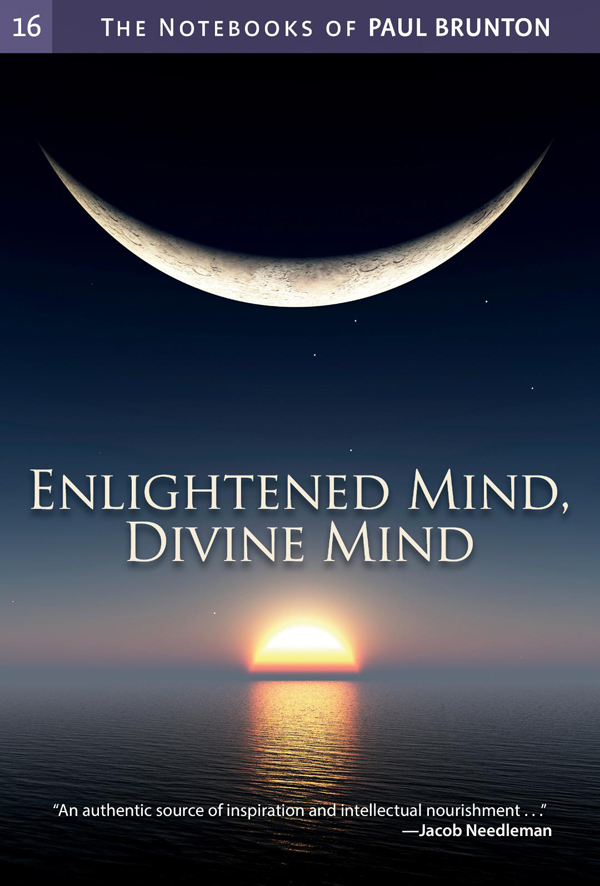
Retail/cover price: $29.95
Our price : $23.96
(You save $5.99!)
About this book:
The Notebooks of Paul Brunton volume 16
Enlightened Mind, Divine Mind
by Paul Brunton
A definitive account of "enlightenment" and the principles that underlie it, carefully distinguishing inspired-human and divine identity. Is it "union with God" or . . .
Subjects: Philosophy, Spirituality
5.75 x 8.5, softcover
(hardcover is available)
480 pages
ISBN 10: 0-943914-46-9
ISBN 13: 978-0-943914-46-6
Book Details
"The God in the sun is the 'I' in me — this, put tersely, is the essence of man's relationship to divinity. A whole book may be needed to explain it, a whole lifetime to get direct experience of its truth as insight."
"We may dwell in inner mystical fellowship with God but we may not become as God. Those who proclaim false self-deification needlessly make a grotesquely exaggerated statement of what is already by itself a sufficiently tremendous truth."
—Paul Brunton
This volume offers a strong treatment of what enlightenment is and is not, and of the principles that underlie its arisal. Examining claims of "union with God," it addresses forcefully the fallacy of equating even the highest degree of individual human illumination with the universal intelligence in which individual realization is rooted. P.B. carefully distinguishes stages of enlightenment in the spiritual hierarchy of mystics, saints, messengers, prophets, sages, and avatars.
Category Twenty-five: WORLD-MIND IN INDIVIDUAL MIND
INTRODUCTION
1. THEIR MEETING AND INTERCHANGE
God is in Man
Man is not, does not become, God
Fallacy of "Divine Incarnation"
2. ENLIGHTENMENT WHICH STAYS
Glimpses and permanent realization
Sudden or gradual?
Enlightenment comes quietly
Naturalness of the attainment
Degrees of enlightenment
Nonduality, sahaja, insight
Conscious transcendental sleep
Individuality remains
World continues
General effects of enlightenment
3. THE SAGE
The race of sages
Remarks on specific illuminates
Differences in attainment, expression
Wisdom beyond bliss
Qualities, characteristics of the sage
God alone is perfect
Sage not easily recognized
Isolation, privacy, reticence
Sage is usually misunderstood
Sages merit veneration
4. THE SAGE'S SERVICE
A full identity of interest
Help the sage gives
Effects of the sage's presence
Sage as catalyst for higher powers
Sage works with few directly
5. TEACHING MASTERS, DISCIPLESHIP
Teaching and non-teaching illuminates
Advice, warnings to would-be teachers
Value of a qualified teacher
Seeking the sage
Approaching the sage
Qualifications for discipleship
Master-disciple relationship, general
Master is symbol of Overself
True relationship is internal
Eventual graduation of disciple
Category Twenty-six: WORLD-IDEA
INTRODUCTION
1. DIVINE ORDER OF THE UNIVERSE
Meaning, purpose, intelligent order
Ultimate "rightness" of events
Nature of the World-Idea
World-Idea is ultimate determinant
Uniqueness, non-duplication
On the "why" of "creation"
Universe as emanation of Reality
2. CHANGE AS UNIVERSAL ACTIVITY
Everything changes
Metaphysical view of universal change
3. POLARITIES, COMPLEMENTARIES, DUALITIES OF THE UNIVERSE
Paradox, duality, nonduality
Opposites constitute universe
Cyclic unfoldment, reversal
Spiral movement of universal flux
4. TRUE IDEA OF MAN
Man more than animal
Divine essence of Man
Purpose of human life
Glimpsing the World-Idea
Co-operating with the World-Idea
World-Idea guides evolution
Evolution's goal is not merger
Category Twenty-seven: WORLD-MIND
INTRODUCTION
1. WHAT IS GOD?
Differing views of God
Is God good, conscious?
God beyond finite knowing
The active God we worship
2. NATURE OF WORLD-MIND
Attributes, characteristics, powers
As source of all
3. WORLD-MIND AND "CREATION"
How
Why
Distinguishing
World-Mind and Mind
Category Twenty-eight: THE ALONE
INTRODUCTION
1. ABSOLUTE MIND
Mind alone Is
Levels, phases, functions of Mind
On knowing Why
Real as self-existent, transcendent, unique
Real as unchangeable
Real as Void
Real as Consciousness
2. OUR RELATION TO THE ABSOLUTE
Inadequacy of human symbolization
Reporting, nonetheless, has value
Reality reveals itself through Overself
Meditations on Mind
The ultimate "experience"
“. . . a veritable treasure-trove of philosophic-spiritual wisdom.” —Elisabeth Kubler-Ross
“. . . sensible and compelling. His work can stand beside that of such East-West bridges as Merton, Huxley, Suzuki, Watts, and Radhakrishnan. It should appeal to anyone concerned personally and academically with issues of spirituality.” —Choice
“Vigorous, clear-minded and independent . . . a synthesis of Eastern mysticism and Western rationality. . . A rich volume.” —Library Journal
“. . . a great gift to us Westerners who are seeking the spiritual.” —Charles T. Tart
“A person of rare intelligence. . . thoroughly alive, and whole in the most significant, 'holy' sense of the word.” —Yoga Journal
For more reviews of the Notebooks series, click here
Enlightened Mind, Divine Mind is the composite title under which we originally published the final four categories of Paul Brunton's twenty-eightfold "Ideas'' schemata. These culminating categories of The Notebooks of Paul Brunton give a definitive account of "Enlightenment'' and explore the principles underlying it. Treating with unprecedented clarity the distinctions between inspired-human and divine identity, these final four categories intimately illustrate the stable goal of spiritual development and provide a standard by which to evaluate claims of "union with God.''
Category twenty-five, World-Mind in Individual Mind, brings us nearly full-circle from our starting point in the introduction to volume one, Perspectives. Here we get the details of what we there spoke of as "a condition of mind and heart which is rare in any century.'' Here we get what cannot fail to be recognized as a firsthand, "insider's account" of that goal which makes sense of spiritual aspiration and inspires continued rational effort, day by day, toward stable and honest self-realization. Here we see a wisdom nourished, rather than challenged, by facts; a serenity comprehending, rather than oblivious of, events; a spiritual maturity fulfilled in, rather than at odds with, efficient practicality. Here, in short, readers can see clearly why we attribute such unusual importance to P.B.'s later writings. Other reliable accounts of lasting, complete enlightenment are either deliberately incomplete or expressed in language appropriate to other times or other cultures than our own. Here is a vivid updating, for modern mentalities, of what a mind continually attuned to God is like and offers its society. This section is convincing testimony that much of what appears in these Notebooks expresses such a mind.
A significant amount of the material in each of the three remaining sections — category twenty-six, World-Idea; category twenty-seven, World-Mind; and category twenty-eight, The Alone — could almost equally be placed in either or both of the others. We have tried to place such paras according to their primary emphasis. We approached individual paras that speak of all three — Mind, World-Mind, and World-Idea — for example, with the questions, "Which of them is this para telling us the most about; which does it discuss most definitively; what is its emphasis?'' Likewise, we asked the same questions of paras addressing only two of the three terms. Nonetheless, there remain paras whose placement is still not obvious. In such cases, we have placed the paras where we hope they will be most useful to the reader's increasingly subtle understanding of P.B.'s thought. Because of the subtlety in many of the sections, we have done a much more extensive job of sequencing paras here than in earlier categories. On some of the placements, we still have friendly disagreement and look forward to responses from readers.
Three subthemes within World-Idea likewise contain similar material to one another. The subtheme "evolution's goal is not merger'' focuses on the problem, "Can there be an understandable purpose to evolution if it leads ultimately to annihilation or its equivalent, featureless merger?'' Although many paras that deal with evolution in general are related to this question, only those paras directly stating or answering it have been placed in the "no merger'' theme — which emphasizes realization of the World-Idea as the goal of evolution. The subtheme "World-Idea guides evolution'' contains most of the paras dealing with the process of evolution, with the World-Idea as the underlying propulsive force guaranteeing that evolution's goals will be achieved. The theme "Purpose of human life'' deals with issues common to these prior two, but separates out the paras emphasizing the World-Idea as the only structure within which human life can have significance.
Editorial conventions here are the same as stated in the introductions to Perspectives and The Quest. Likewise, (P) at the end of a para indicates that it also appears in Perspectives, the introductory volume to this series.
Excerpts from Notebooks category twenty-five, World-Mind in Individual Mind
PREFATORY
THE HIGHEST attainment in philosophy, that of the sage, comes from a union of the sharpest, subtlest thinking and of the capacity to enter the thought-free state — a combination of real knowledge and felt peace — balanced, united, yielding truth. This is what makes the sage, whose understanding and peace are his own, who does not depend upon any outside person. Yet it is not the little ego's emotion nor its intellectuality which has brought him to this truth. It is the highest human mind, the finest human feeling. The total man cannot lose what he has attained. It is the higher power working inside the human being.
HE DOES NOT regard greatness to be in him but only behind him. Neither vain ambition nor false egoism can deceive him about the inner reality of his psychological situation. He understands and feels that a power not his own and not human is using him as its human instrument, that a larger mind is overshadowing his ego.
From chapter 1: THEIR MEETING AND INTERCHANGE
God is in Man
1
"The God in the sun is the 'I' in me" — this put tersely is the essence of man's relationship to divinity. A whole book may be needed to explain it, a whole lifetime to get direct experience of its truth as insight.
2
We see plenty of evidence that the universe is not mindless, and therefore that there is a Universal Mind related to it — that is to say, related to us, who are parts of the whole.
3
It might well be said that I am connected with God on the one hand, with the world on the other hand, but both connections are highly ingenious inventions. God is literally in me. His "I" makes my "I" possible. My own sense of being is immersed in God's archetypal thought.
4
The individual mind not only exists within the World-Mind, it is born of the World-Mind.
5
Jesus' use of the metaphor, the Son and the Father, was intended to point out that man, in his inner self, was born of, and is still in relation to, the Higher power, God.
6
The innermost being of man and the cosmos is ever at rest, and single. The incarnate being of both is ever in movement, and dual. The inner is the Real, Changeless; the other is the Appearance, and subject to the play of two opposed but interpenetrating active forces. Because it is the quintessence of consciousness and intelligence, I call the first Mind. It is without shape, infinite and untouchable by man, but because it is, universes are able to appear, expand, disintegrate, and reincarnate. This activity is directly due to the agency of the first entity to appear, which I call World-Mind. From the latter flows ceaselessly the energy which is at the heart of every atom, the life-force which is at the heart of every man. World-Mind and Mind are for us the twin sides — a crude but simple, understandable metaphor — of God. The human being draws breath, exists, and thinks with awareness only because of this relationship. If he declares himself an atheist, sees himself only as an animal, rejects any divine basis to his mind, he testifies thereby to a failure on his own part: he has failed to seek and find, or because of prejudice — that is, of prejudgement — has sought wrongly. Jesus gave two helps in this matter: seek the kingdom of heaven first, and seek it within. It is open to anyone to test this truth that he is related to God. But if he does not bring certain qualities into the work, such as patience and humility, the going may be too hard, the result disappointing.
7
Something of that Mind is in us, as a parent has left some legacy in the child, but at the same time we are also in that Mind.
From chapter 2, ENLIGHTENMENT WHICH STAYS
41
When the glimpse experience has been repeated many times it will come to be looked upon as a natural experience. The state it induces will seem to be a normal one. The miracle which the beginner makes of it will seem an unnecessary exaggeration to the matured proficient man.
42
The difference between the intermediate and the final state is the difference between feeling the Overself to be a distinct and separate entity and feeling it to be the very essence of oneself, between temporary experience of it and enduring union with it.(P)
Enlightenment comes quietly
76
He will find that the onset of insight will not be at all like the picture of it which he had previously and erroneously formed.
77
When you awaken to truth as it really is, you will have no occult vision, you will have no "astral" experience, no ravishing ecstasy. You will awaken to it in a state of utter stillness, and you will realize that truth was always there within you and that reality was always there around you. Truth is not something which has grown and developed through your efforts. It is not something which has been achieved or attained by laboriously adding up those efforts. It is not something which has to be made more and more perfect each year. And once your mental eyes are opened to truth they can never be closed again.(P)
78
The discovery of his true being is not outwardly dramatic, and for a long time no one may know of it, except himself. The world may not honour him for it: he may die as obscure as he lived. But the purpose of his life has been fulfilled; and God's will has been done.
79
There is nothing melodramatic about realization of Truth. Those who look for marvels look in vain, unless indeed its bestowal of singular serenity is a marvel.
80
It is extraordinary how the same experience may produce the same metaphoric sentences used to describe it, although the speakers belong to lands thousands of miles apart and use utterly different languages. A South Indian illumined mystic, telling me of the moment when illumination dawned on him, said that it was all as simple as seeing a fruit held in the palm of one's hand. A Chinese mystic of the same high status said that it was as obvious as seeing a pearl in the palm of one's hand!
81
Chuang Tzu wrote: "From wholeness one comprehends; from comprehension one comes near to Tao. There one stops. To stop without knowing how one stops — this is Tao."
82
No one really knows how this enlightenment first dawns on him. One moment it was not there, the next moment he was somehow in it.
83
No announcements tell the world that he has come into enlightenment. No heralds blow the trumpets proclaiming man's greatest victory — over himself. This is in fact the quietest moment of his whole life.(P)
From chapter 5: TEACHING MASTERS, DISCIPLESHIP
Teaching and non-teaching illuminates
1
There is a widespread belief among questers that a man who becomes enlightened automatically becomes a teacher and attaches followers to himself for instruction. This is not inexorably so. He may, or may not.
4
It is not every spiritually enlightened man who is called to hold his lamp in mankind's darkness, or is required to be a teacher of others. This is a special art and requires special gifts. Those who attain enlightenment fall into two grades: the first, mystics who are possessed by the Overself but who can neither show others the way to this state nor expound in detail the truth they have realized; the second, sages who can do both these things.
5
To be a teacher, to be able to educate others in philosophic doctrines, to prepare pupils for the wise life, requires qualities which knowledge alone does not necessarily confer.
8
There are two kinds of masters: Inspiring masters like Ramana Maharshi, and Teaching masters, like Gurunathan. The first have greater power to inquire; they can show the goal but not the path to it; the second have a greater capacity to lead aspirants step by step along the path.
9
All qualified teachers are illumined but not all illumined men are teachers.
Advice, warnings to would-be teachers
30
He is a true messenger who seeks to keep his ego out of his work, who tries to bring God and man together without himself getting in between them.
True relationship is internal
210
The Sufis consider the relation between teacher and disciple as a sacred eternal tie that can never be broken, as the mystical union by which two souls become so close by the telepathic link as to live and feel almost as one.
213
Either at acceptance or later, the disciple experiences an ecstatic reverie of communion with the teacher's soul. There is a sensation of space filled with light, of self liberated from bondage, of peace being the law of life. The disciple will understand that this is the real initiation from the hands of the teacher rather than the formal one. The disciple will probably be so carried away by the experience as to wish it to happen every day. But this cannot be. It can happen only at long intervals. It is rather to be taken as a sign of the wonderful relation which has sprung up between them and as a token of eventual attainment.(P)
218
The attitude of the student towards his teacher is of great importance to the student, because it lays an unseen cable from him to the teacher, and along that cable pass to and fro the messages and help which the teacher has to give. The teacher can never lose contact with the student by going to another part of the world. That unseen cable is elastic and it will stretch for thousands of miles, because the World-Mind consciousness will travel almost instantly and anywhere. Contact is not broken by increasing physical distance. It is broken by the change of heart, the alteration of mental attitude by the student towards the teacher. If the attitude is wrong, then the cable is first weakened and finally snapped. Nothing can then pass through and the student is really alone.
Excerpts from Notebooks category twenty-six, World-Idea
PREFATORY
SPIRITUAL FEELINGS are good and necessary but they are not enough; they need to be completed and complemented by spiritual knowledge. We have much to gain by learning the laws and knowing the processes which the World-Mind has imprinted upon the cosmos. Otherwise we are likely to violate those laws or interfere with those processes through ignorance. The result will then be suffering and unhappiness.
IT IS MAN'S true business in this world to discover his real self and to ascertain his relationship to the surrounding world. His mind will then shine with the Secret glory of human nature and his life will come into harmony with the cosmic order and beauty.
From chapter 1: DIVINE ORDER OF THE UNIVERSE
3
We live in an orderly universe, not an accidental one. Its movements are measured, its events are plotted, and its creatures develop toward a well-defined objective. All this could not be possible unless the universe were ruled by immutable laws.
7
If moon, earth, and planets came into existence, and were thenceforward directed, by mere chance or whim, there would be no pattern in their positions and no rhythm in their movements; that is, there would be no world-order. Were the sun and stars involved in the same caprice, we would not know when to expect daylight and darkness, nor where the North Pole would be found. But because there is a World-Idea, there is law, orderliness, and some certainty: there is a universe, not a chaos.
10
If there were no World-Idea there would be no world as we now know it, for its elements would have interacted and associated quite irresponsibly by mere accident and chance. In the result the sun might or might not have appeared today, the seasonal changes would have no orderly arrangement nor food-crops any predictable or measurable probability; instead of man there might have evolved a frightful monstrosity, half-animal and half-demon, utterly devoid of any aspiration, any conscience, any pity at all.
14
There is enough evidence in Nature and in humanity for the existence of a Higher Power. Those who say they cannot find it have looked through the coloured spectacles of preconceived notions or else in too limited an area. There is plenty of it for those who look aright, and who widen their horizon; it will then be conclusive.
66
The World-Idea is self-existent. It is unfolded in time and by time; it is the basis of the universe and reflected in the human being. It is the fundamental pattern of both and provides the fundamental meaning of human life.(P)
71
Just as the World-Idea is both the expression of the World-Mind and one with it, so the Word (Logos) mentioned in the New Testament as being with God is another way of saying the same thing. The world with its form and history is the embodiment of the Word and the Word is the World-Idea.
From chapter 3: POLARITIES, COMPLEMENTARIES, DUALITIES OF THE UNIVERSE
Opposites constitute universe
20
The World-Mind is able to think the World-Idea only under the form of opposite conditions existing at the same time. No world could possibly come into existence without these contrasts and differences. Their presence accounts for the existence of the universe; their movement toward equilibrium with one another accounts for its history.
21
If we humanly dislike the very idea of this duality, this constant tension between two forces, this perpetual opposition by evil, disease, destruction, we must remember that if it did not exist then neither the entire universe itself nor the human being within it could exist as such. The two contrary principles must exist together or not at all.
22
What I learned from the Hindu texts about Brahma breathing out the universe into physical existence and then back into Himself, not only referred symbolically to the periodic reincarnations of the universe but also and actually to its moment-to-moment rhythm of interchange of contrasts, differences, and even opposites. It is this interchange which not only makes universal existence possible but also sustains universal equilibrium. Without it there would be no world for man to behold, no experiences in it for him to develop, no conscious awareness in time and space.(P)
23
Everything in Nature is included within this law of contrasting conditions. Nothing is excepted from it. Even the universe of definite, spherical forms exists in its opposite - formless space. We humans may not like the law; we would prefer light without shadow, joy without pain; but such is the World-Idea, God's thought. It is the product of infinite wisdom and as such we may trust and accept that it could not be otherwise.(P)
From chapter 4: TRUE IDEA OF MAN
Glimpsing the World-Idea
121
When one is allowed a glimpse of the World-Idea, he feels that he understands at last why he came here, what he has to do, and where his place is. It is like an immense enlargement of the mind, an escape from the littleness of the ego, and a finding-out of a long-hidden secret.
122
When the fact of the World-Idea flashes into his mind, he stands like Hillary on Mount Everest. At last this bewildering enigma which surrounds and entraps everyone everywhere assumes pattern, the countless events and things and processes leave their isolation, their useless chaos, and fit together.
136
What they may expect to find with intellect is at most the slow uncovering of little fragments of the World-Idea: but with intuition the subtler meanings and larger patterns are possible. These include but also transcend the physical plane. A few fated persons, whose mission is revelation, are granted once in a lifetime the Cosmic Vision.(P)
140
Only to the extent that he unites his own little purpose with the universal purpose can he find harmony and happiness. Its strength will support him firmly in adversity and misfortune, as it will carry him triumphantly through misery and hostility.
Excerpts from Notebooks category twenty-seven, World-Mind
PREFATORY
IS IT SO unimportant to form an idea of God which shall be as near the truth as possible through containing so little error as possible? The Spirit which inspired and instructed Moses did not think so. "Thou shalt have no other Gods before me," it said. That is, we must not label the wrong thing with the name of God, or hold the wrong idea about him as if it were the correct one. "Thou shalt not make unto thee any graven image" was the next commandment. But an idol does not necessarily have to be made of stone or metal. It can be made of an idea.
IF ANYONE wishes to call World-Mind the Lord of the Universe, he will not be wrong; but then if someone else wishes to assert that World-Mind cannot be a Personal God, neither will he be wrong. Is there any possible reconciliation of these two views? Yes, for in both cases these are only mental formulations, and it is impossible to describe God positively, accurately in intellectual terms. All mental concepts of God have to be discarded in the end. No dogmatic statement can hold the truth as it is: we merely get from the statement something to satisfy the intellect. For the Real is ineffable, that is, undescribable and untouchable by the ordinary finite capacity of humans. But because there is something godlike, somewhere, in man, intuition may reveal it.
From chapter 1: WHAT IS GOD?
Differing views of God
1
We must differentiate between the invented God of religion and the imagined God of mysticism, on the one hand, and the real God of philosophical truth, on the other. The creator-God of religion is a more erroneous conception than the immanent God of mysticism, but both are alien to truth. Both have failed to fathom the Unconditioned, Nondual, and Illimitable God.
2
There is a universal principle of Eternal Intelligence behind all existence. If the follies of superstition and the bigotries of religion caricature it, the verities of philosophy and the insights of wisdom restore a true picture.
3
We are not atheists. We do hold that a reality higher than the crudely material one exists. If the name of God is given to this reality, then we accept God; but we do not and will not accept the erroneous and degrading notion of God which most men have.
4
This higher concept of God is much more respectful and much more reverential than the old traditional one.
From chapter 2: NATURE OF WORLD-MIND
As source of all
48
The point which appears in space is a point of light. It spreads and spreads and spreads and becomes the World-Mind. God has emerged out of Godhead. And out of the World-Mind the world itself emerges — not all at once, but in various stages. From that great light come all other and lesser lights, come the suns and the planets, the galaxies, the universes, and all the mighty hosts of creatures small and great, of beings just beginning to sense and others fully conscious, aware, wise. And with the world appear the opposites, the dual principle which can be detected everywhere in Nature, the yin and yang of Chinese thought.(P)
58
Call it God or Allah, the Creator or Tao, it is the First, the Source, the Origin from which all energies and things come into being.
59
The World-Mind is the creative principle of the universe.
From chapter 3: WORLD-MIND AND "CREATION"
How
1
How does God "create" the universe? Since in the beginning God alone is, there is no second substance that can be used for such "creation." God is forced to use his own substance for the purpose. God is Infinite Mind, so he uses mental power — Imagination — working on mental substance — Thought — to produce the result which appears to us as the universe.(P)
2
Can anything be derived from something that is essentially different from it? This is impossible. Therefore existence cannot be derived from non-existence. If the universe exists today, then its essence must have existed when the universe itself had not been formed. This essence needed no "creation" for it was God, World-Mind, Itself.(P)
3
The universe is the World-Mind coming out of itself and therefore making its manifestation out of its own substance — that is, Mind — just as the spider spins out a web from itself.
4
The visible cosmos has come into being out of the invisible absolute by a process of emanation. That is why the relation between them is not only pantheistic but also transcendent.(P)
Excerpts from Notebooks category twenty-eight, The Alone
PREFATORY
THE REAL stands alone. It is without any kind of support, and needs none. It is without any kind of dependence or dependent relationship.
THE EMPTINESS of space is a symbol. The universe spread out in that space is also a symbol. Both speak of the Real that is in them, but each in a different way. Yes, within every localized point, every timed instant, That which Is proclaims Itself as the unique Fact outside relationship and beyond change.
From chapter 1: ABSOLUTE MIND
Mind alone Is
1
All he needs to take him through intricate problems of metaphysics is this single masterly conception: Mind alone is.
2
In the last summation, there is only a single infinite thing, but it expresses itself brokenly through infinitely varied forms.
3
Philosophy defines God as pure Mind from the human standpoint and perfect Reality from the cosmic one. The time has indeed come for us to rise to meditate upon the supreme Mind. It is the source of all appearances, the explanation of all existences. It is the only reality, the only thing which is, was, and shall be unalterably the same. Mind itself is ineffable and indestructible. We never see it as it is in itself but only the things which are its passing phases.
4
The ultimate reality is one and the same, no matter what it is called; to the Chinese mystic it is TAO, that is, the Significance; to the Christian mystic it is GOD; to the Chinese philosopher it is TAT CHI, that is, The Great Extreme; to the Hindu philosopher it is TAT, that is, Absolute Existence. It has its own independent, everlasting, invisible, and infinite existence, while all worldly things and creatures are but fragmentary and fleeting expressions of IT on a lower sphere altogether. It lies deeply concealed as their innermost substance, and persists through their changes of form.
5
Before the personal ego came into being, Being was. "Before Abraham was I am," announced Jesus. Before thoughts, Thought! In its timelessness, Mind is the One without a Second; "in its timed manifestation it is all things."
Levels, phases, functions of Mind
41
When Mind concentrates itself into the World-Mind, it establishes a focus. However vast, it goes out of its own unlimited condition, it passes from the true Infinite to the pseudo-Infinite. Consequently the World-Mind, being occupied with its cosmos, cannot be regarded as possessed of the absolute character of Pure Mind. For what is its work but a movement of imagination? And where in the ineffable absolute is there room for either work or imagination? The one would break its eternal stillness, the other would veil its unchangeable reality. This of course it can never do, for Being can never become Non-Being. But it can send forth an emanation from itself. Such an emanation is the World-Mind. Through its prolonged contemplation of the cosmos Mind thus becomes a fragment of itself, bereft of its own undifferentiated unbroken unity. Nevertheless the World-Mind, through its deputy the Overself, is still for humans the highest possible goal.(P)
42
Because of Mind's presence, that which men call God arises, creates, and dissolves entire worlds, kingdoms of Nature; yet Mind itself never moves, never acts, is forever still, is the ultimate of all ultimates, forever the only Unpassing, the only Unconditioned, the untouchable Mystery.
43
Mind is the essence of all manifested things as World-Mind and the Mystery behind unmanifest Nothing.(P)
From chapter 2: OUR RELATION TO THE ABSOLUTE
Inadequacy of human symbolization
1
We may argue about everything except Truth. Even the very best argument can produce only another thought at the end. For Truth can be expressed in words, spoken or written, only by bringing it down to the level of intellect, whereas on its own level as being knowledge of the Real it transcends intellect. Any thought of the Real merely makes an object of it, one among a multitude of other objects, and hence fails to arrive at it.
6
What the Godhead is we do not know. The nature and the structure of the Grand Mystery are beyond all human investigation. We cannot describe it correctly or name it accurately. We can only observe some of its workings and effects in our individual selves and in the universe.
7
The Infinite Reality cannot be reasoned with, but only reasoned about. It cannot even be adequately symbolized, for regarding it as a mental image, a pictured thought is only a more refined form of idol-worship. It can only be designated. The true Godhead is unconditioned, formless, not picturable. No individual worship can reach what is utterly beyond all individual existence. No name can be given that will properly stand for what is without attributes and without limitations. In the ultimate reality there are and can be no distinctions and no differences, no grades and no change.
59
Philosophy understands sympathetically but does not agree practically with the Buddha's consistent refusal to explain the ultimate realization. His counsel to disciples was: "What word is there to be sent from a region where the chariot of speech finds no track on which to go? Therefore to their questionings offer them silence only."
It is certainly hard to capture this transcendental indefinable experience in prosaic pen-and-ink notes. But is it really so impossible for the initiate to break his silence and voice his knowledge in some dim finited adumbration of the Infinite? To confess that intellectually we know nothing and can know nothing about the Absolute is understandable. But to say that therefore we should leave its existence entirely out of our intellectual world-view, is not. For although the exact definition and direct explanation of words are unable to catch the whole of this subtle experience within their receiving range because they are turned into ordinary human intellectual emotional and physical experience, they may nevertheless evoke an intuitive recognition of its beauty; they may suggest to sensitive minds a hint of its worth and they may arouse the first aspiration towards its attainment for oneself.
Why if this state transcends thinking, whether in words or pictures, have so many mystics nevertheless written so much about it? That they have protested at the same time the impossibility of describing the highest levels of their experience does not alter this curious fact. The answer to our question is that to have kept completely silent and not to have revealed that such a unique experience is possible and that such a supreme reality is existent would have been to have left their less fortunate fellow men in utter ignorance of an immensely important truth about human life and destiny. But to have left some record behind them, even if it would only hint at what it could not adequately describe, would be to have left some light in the darkness. And even though an intellectual statement of a super-intellectual fact is only like an indirect and reflected light, nevertheless it is better than having no light at all.
So long as men feel the need to converse with other men on this subject, so long as masters seek to instruct disciples in it, and so long as fortunate seers recognize the duty to leave some record - even if it be an imperfect one - of their enlightenment behind them for unfortunate humanity, so long will the silence have to be broken, despite Buddha, and the lost word uttered anew.(P)
In his own words:
“Writing, which is an exercise of the intellect to some, is an act of worship to me. I rise from my desk in the same mood as that in which I leave an hour of prayer in an old cathedral, or of meditation in a little wood . . .” —from Perspectives, volume 1 in The Notebooks of Paul Brunton, p. 143
“P.B. as a private person does not count. There are hundreds of millions of such persons anyway. What is one man and his quest? P.B.’s personal experiences and views are not of any particular importance or special consequence. What happens to the individual man named P.B. is a matter of no account to anyone except himself. But what happens to the hundreds of thousands of spiritual seekers today who are following the same path that he pioneered is a serious matter and calls for prolonged consideration. Surely the hundreds of thousands of Western seekers who stand behind him and whom indeed, in one sense, he represents, do count. P.B. as a symbol of the scattered group of Western truth-seekers who, by following his writings so increasingly and so eagerly, virtually follow him also, does count. He personifies their aspirations, their repulsion from materialism and attraction toward mysticism, their interest in Oriental wisdom and their shepherdless state. As a symbol of this Western movement of thought, he is vastly greater than himself. In his mind and person the historic need for a new grasp of the contemporary spiritual problem found a plain-speaking voice . . .” —from Perspectives, volume 1 in The Notebooks of Paul Brunton, p. 145
Learn more about Paul Brunton through articles at the Paul Brunton Philosophic Foundation web site
Electronic versions of this book are available from all major (Amazon Kindle, Barnes & Noble, Apple, Kobo, etc.) and most smaller ebook vendors. Please don't try to order ebooks directly from us, as we are not yet able to deliver anything to you in a preferred electronic format.
To see all our Paul Brunton titles, scroll down to The Complete Paul Brunton Opus below.
Click here to see or order the complete set of The Notebooks of Paul Brunton.
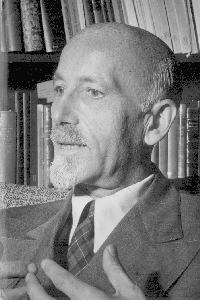
Paul Brunton helps us hear the melody behind the medley of today's "spiritual marketplace." His late writings raise the bar for what we can expect of spiritual teachings and teachers, and what we can do for ourselves. Born in London in 1898, he soon became a leading pioneer of much of what we now take for granted. He traveled widely throughout the world (long before it was fashionable) to meet living masters of various traditions with whom he then lived and studied. His eleven early books from 1934–1952 shared much of what he learned, and helped set the stage for dramatic east-west exchanges of the late 20th century. Paul Brunton left more than 10,000 pages of enormously helpful new work in notebooks he reserved for posthumous publication, much of which is now available as The Notebooks of Paul Brunton. See "The Complete Paul Brunton Opus" in blue below to see his many works available on this site. You can also search on Paul Brunton in the search bar to browse the selections, or click on a link below for specific connections.
Click here for an article about Paul Brunton.
Click here for The Notebooks of Paul Brunton.
To access small theme-based books compiled from Paul Brunton's writings, scroll down to Derived from the Notebooks below.
To access Paul Brunton's early writings, published from 1934–1952, scroll down to Paul Brunton's Early Works below.
To access commentaries on Paul Brunton and his work by his leading student, Anthony Damiani, as well as other writings about Paul Brunton and/or his work, scroll down to Commentaries and Reflections on Paul Brunton and His Work below.
Book Details
"The God in the sun is the 'I' in me — this, put tersely, is the essence of man's relationship to divinity. A whole book may be needed to explain it, a whole lifetime to get direct experience of its truth as insight."
"We may dwell in inner mystical fellowship with God but we may not become as God. Those who proclaim false self-deification needlessly make a grotesquely exaggerated statement of what is already by itself a sufficiently tremendous truth."
—Paul Brunton
This volume offers a strong treatment of what enlightenment is and is not, and of the principles that underlie its arisal. Examining claims of "union with God," it addresses forcefully the fallacy of equating even the highest degree of individual human illumination with the universal intelligence in which individual realization is rooted. P.B. carefully distinguishes stages of enlightenment in the spiritual hierarchy of mystics, saints, messengers, prophets, sages, and avatars.
Category Twenty-five: WORLD-MIND IN INDIVIDUAL MIND
INTRODUCTION
1. THEIR MEETING AND INTERCHANGE
God is in Man
Man is not, does not become, God
Fallacy of "Divine Incarnation"
2. ENLIGHTENMENT WHICH STAYS
Glimpses and permanent realization
Sudden or gradual?
Enlightenment comes quietly
Naturalness of the attainment
Degrees of enlightenment
Nonduality, sahaja, insight
Conscious transcendental sleep
Individuality remains
World continues
General effects of enlightenment
3. THE SAGE
The race of sages
Remarks on specific illuminates
Differences in attainment, expression
Wisdom beyond bliss
Qualities, characteristics of the sage
God alone is perfect
Sage not easily recognized
Isolation, privacy, reticence
Sage is usually misunderstood
Sages merit veneration
4. THE SAGE'S SERVICE
A full identity of interest
Help the sage gives
Effects of the sage's presence
Sage as catalyst for higher powers
Sage works with few directly
5. TEACHING MASTERS, DISCIPLESHIP
Teaching and non-teaching illuminates
Advice, warnings to would-be teachers
Value of a qualified teacher
Seeking the sage
Approaching the sage
Qualifications for discipleship
Master-disciple relationship, general
Master is symbol of Overself
True relationship is internal
Eventual graduation of disciple
Category Twenty-six: WORLD-IDEA
INTRODUCTION
1. DIVINE ORDER OF THE UNIVERSE
Meaning, purpose, intelligent order
Ultimate "rightness" of events
Nature of the World-Idea
World-Idea is ultimate determinant
Uniqueness, non-duplication
On the "why" of "creation"
Universe as emanation of Reality
2. CHANGE AS UNIVERSAL ACTIVITY
Everything changes
Metaphysical view of universal change
3. POLARITIES, COMPLEMENTARIES, DUALITIES OF THE UNIVERSE
Paradox, duality, nonduality
Opposites constitute universe
Cyclic unfoldment, reversal
Spiral movement of universal flux
4. TRUE IDEA OF MAN
Man more than animal
Divine essence of Man
Purpose of human life
Glimpsing the World-Idea
Co-operating with the World-Idea
World-Idea guides evolution
Evolution's goal is not merger
Category Twenty-seven: WORLD-MIND
INTRODUCTION
1. WHAT IS GOD?
Differing views of God
Is God good, conscious?
God beyond finite knowing
The active God we worship
2. NATURE OF WORLD-MIND
Attributes, characteristics, powers
As source of all
3. WORLD-MIND AND "CREATION"
How
Why
Distinguishing
World-Mind and Mind
Category Twenty-eight: THE ALONE
INTRODUCTION
1. ABSOLUTE MIND
Mind alone Is
Levels, phases, functions of Mind
On knowing Why
Real as self-existent, transcendent, unique
Real as unchangeable
Real as Void
Real as Consciousness
2. OUR RELATION TO THE ABSOLUTE
Inadequacy of human symbolization
Reporting, nonetheless, has value
Reality reveals itself through Overself
Meditations on Mind
The ultimate "experience"
“. . . a veritable treasure-trove of philosophic-spiritual wisdom.” —Elisabeth Kubler-Ross
“. . . sensible and compelling. His work can stand beside that of such East-West bridges as Merton, Huxley, Suzuki, Watts, and Radhakrishnan. It should appeal to anyone concerned personally and academically with issues of spirituality.” —Choice
“Vigorous, clear-minded and independent . . . a synthesis of Eastern mysticism and Western rationality. . . A rich volume.” —Library Journal
“. . . a great gift to us Westerners who are seeking the spiritual.” —Charles T. Tart
“A person of rare intelligence. . . thoroughly alive, and whole in the most significant, 'holy' sense of the word.” —Yoga Journal
For more reviews of the Notebooks series, click here
Enlightened Mind, Divine Mind is the composite title under which we originally published the final four categories of Paul Brunton's twenty-eightfold "Ideas'' schemata. These culminating categories of The Notebooks of Paul Brunton give a definitive account of "Enlightenment'' and explore the principles underlying it. Treating with unprecedented clarity the distinctions between inspired-human and divine identity, these final four categories intimately illustrate the stable goal of spiritual development and provide a standard by which to evaluate claims of "union with God.''
Category twenty-five, World-Mind in Individual Mind, brings us nearly full-circle from our starting point in the introduction to volume one, Perspectives. Here we get the details of what we there spoke of as "a condition of mind and heart which is rare in any century.'' Here we get what cannot fail to be recognized as a firsthand, "insider's account" of that goal which makes sense of spiritual aspiration and inspires continued rational effort, day by day, toward stable and honest self-realization. Here we see a wisdom nourished, rather than challenged, by facts; a serenity comprehending, rather than oblivious of, events; a spiritual maturity fulfilled in, rather than at odds with, efficient practicality. Here, in short, readers can see clearly why we attribute such unusual importance to P.B.'s later writings. Other reliable accounts of lasting, complete enlightenment are either deliberately incomplete or expressed in language appropriate to other times or other cultures than our own. Here is a vivid updating, for modern mentalities, of what a mind continually attuned to God is like and offers its society. This section is convincing testimony that much of what appears in these Notebooks expresses such a mind.
A significant amount of the material in each of the three remaining sections — category twenty-six, World-Idea; category twenty-seven, World-Mind; and category twenty-eight, The Alone — could almost equally be placed in either or both of the others. We have tried to place such paras according to their primary emphasis. We approached individual paras that speak of all three — Mind, World-Mind, and World-Idea — for example, with the questions, "Which of them is this para telling us the most about; which does it discuss most definitively; what is its emphasis?'' Likewise, we asked the same questions of paras addressing only two of the three terms. Nonetheless, there remain paras whose placement is still not obvious. In such cases, we have placed the paras where we hope they will be most useful to the reader's increasingly subtle understanding of P.B.'s thought. Because of the subtlety in many of the sections, we have done a much more extensive job of sequencing paras here than in earlier categories. On some of the placements, we still have friendly disagreement and look forward to responses from readers.
Three subthemes within World-Idea likewise contain similar material to one another. The subtheme "evolution's goal is not merger'' focuses on the problem, "Can there be an understandable purpose to evolution if it leads ultimately to annihilation or its equivalent, featureless merger?'' Although many paras that deal with evolution in general are related to this question, only those paras directly stating or answering it have been placed in the "no merger'' theme — which emphasizes realization of the World-Idea as the goal of evolution. The subtheme "World-Idea guides evolution'' contains most of the paras dealing with the process of evolution, with the World-Idea as the underlying propulsive force guaranteeing that evolution's goals will be achieved. The theme "Purpose of human life'' deals with issues common to these prior two, but separates out the paras emphasizing the World-Idea as the only structure within which human life can have significance.
Editorial conventions here are the same as stated in the introductions to Perspectives and The Quest. Likewise, (P) at the end of a para indicates that it also appears in Perspectives, the introductory volume to this series.
Excerpts from Notebooks category twenty-five, World-Mind in Individual Mind
PREFATORY
THE HIGHEST attainment in philosophy, that of the sage, comes from a union of the sharpest, subtlest thinking and of the capacity to enter the thought-free state — a combination of real knowledge and felt peace — balanced, united, yielding truth. This is what makes the sage, whose understanding and peace are his own, who does not depend upon any outside person. Yet it is not the little ego's emotion nor its intellectuality which has brought him to this truth. It is the highest human mind, the finest human feeling. The total man cannot lose what he has attained. It is the higher power working inside the human being.
HE DOES NOT regard greatness to be in him but only behind him. Neither vain ambition nor false egoism can deceive him about the inner reality of his psychological situation. He understands and feels that a power not his own and not human is using him as its human instrument, that a larger mind is overshadowing his ego.
From chapter 1: THEIR MEETING AND INTERCHANGE
God is in Man
1
"The God in the sun is the 'I' in me" — this put tersely is the essence of man's relationship to divinity. A whole book may be needed to explain it, a whole lifetime to get direct experience of its truth as insight.
2
We see plenty of evidence that the universe is not mindless, and therefore that there is a Universal Mind related to it — that is to say, related to us, who are parts of the whole.
3
It might well be said that I am connected with God on the one hand, with the world on the other hand, but both connections are highly ingenious inventions. God is literally in me. His "I" makes my "I" possible. My own sense of being is immersed in God's archetypal thought.
4
The individual mind not only exists within the World-Mind, it is born of the World-Mind.
5
Jesus' use of the metaphor, the Son and the Father, was intended to point out that man, in his inner self, was born of, and is still in relation to, the Higher power, God.
6
The innermost being of man and the cosmos is ever at rest, and single. The incarnate being of both is ever in movement, and dual. The inner is the Real, Changeless; the other is the Appearance, and subject to the play of two opposed but interpenetrating active forces. Because it is the quintessence of consciousness and intelligence, I call the first Mind. It is without shape, infinite and untouchable by man, but because it is, universes are able to appear, expand, disintegrate, and reincarnate. This activity is directly due to the agency of the first entity to appear, which I call World-Mind. From the latter flows ceaselessly the energy which is at the heart of every atom, the life-force which is at the heart of every man. World-Mind and Mind are for us the twin sides — a crude but simple, understandable metaphor — of God. The human being draws breath, exists, and thinks with awareness only because of this relationship. If he declares himself an atheist, sees himself only as an animal, rejects any divine basis to his mind, he testifies thereby to a failure on his own part: he has failed to seek and find, or because of prejudice — that is, of prejudgement — has sought wrongly. Jesus gave two helps in this matter: seek the kingdom of heaven first, and seek it within. It is open to anyone to test this truth that he is related to God. But if he does not bring certain qualities into the work, such as patience and humility, the going may be too hard, the result disappointing.
7
Something of that Mind is in us, as a parent has left some legacy in the child, but at the same time we are also in that Mind.
From chapter 2, ENLIGHTENMENT WHICH STAYS
41
When the glimpse experience has been repeated many times it will come to be looked upon as a natural experience. The state it induces will seem to be a normal one. The miracle which the beginner makes of it will seem an unnecessary exaggeration to the matured proficient man.
42
The difference between the intermediate and the final state is the difference between feeling the Overself to be a distinct and separate entity and feeling it to be the very essence of oneself, between temporary experience of it and enduring union with it.(P)
Enlightenment comes quietly
76
He will find that the onset of insight will not be at all like the picture of it which he had previously and erroneously formed.
77
When you awaken to truth as it really is, you will have no occult vision, you will have no "astral" experience, no ravishing ecstasy. You will awaken to it in a state of utter stillness, and you will realize that truth was always there within you and that reality was always there around you. Truth is not something which has grown and developed through your efforts. It is not something which has been achieved or attained by laboriously adding up those efforts. It is not something which has to be made more and more perfect each year. And once your mental eyes are opened to truth they can never be closed again.(P)
78
The discovery of his true being is not outwardly dramatic, and for a long time no one may know of it, except himself. The world may not honour him for it: he may die as obscure as he lived. But the purpose of his life has been fulfilled; and God's will has been done.
79
There is nothing melodramatic about realization of Truth. Those who look for marvels look in vain, unless indeed its bestowal of singular serenity is a marvel.
80
It is extraordinary how the same experience may produce the same metaphoric sentences used to describe it, although the speakers belong to lands thousands of miles apart and use utterly different languages. A South Indian illumined mystic, telling me of the moment when illumination dawned on him, said that it was all as simple as seeing a fruit held in the palm of one's hand. A Chinese mystic of the same high status said that it was as obvious as seeing a pearl in the palm of one's hand!
81
Chuang Tzu wrote: "From wholeness one comprehends; from comprehension one comes near to Tao. There one stops. To stop without knowing how one stops — this is Tao."
82
No one really knows how this enlightenment first dawns on him. One moment it was not there, the next moment he was somehow in it.
83
No announcements tell the world that he has come into enlightenment. No heralds blow the trumpets proclaiming man's greatest victory — over himself. This is in fact the quietest moment of his whole life.(P)
From chapter 5: TEACHING MASTERS, DISCIPLESHIP
Teaching and non-teaching illuminates
1
There is a widespread belief among questers that a man who becomes enlightened automatically becomes a teacher and attaches followers to himself for instruction. This is not inexorably so. He may, or may not.
4
It is not every spiritually enlightened man who is called to hold his lamp in mankind's darkness, or is required to be a teacher of others. This is a special art and requires special gifts. Those who attain enlightenment fall into two grades: the first, mystics who are possessed by the Overself but who can neither show others the way to this state nor expound in detail the truth they have realized; the second, sages who can do both these things.
5
To be a teacher, to be able to educate others in philosophic doctrines, to prepare pupils for the wise life, requires qualities which knowledge alone does not necessarily confer.
8
There are two kinds of masters: Inspiring masters like Ramana Maharshi, and Teaching masters, like Gurunathan. The first have greater power to inquire; they can show the goal but not the path to it; the second have a greater capacity to lead aspirants step by step along the path.
9
All qualified teachers are illumined but not all illumined men are teachers.
Advice, warnings to would-be teachers
30
He is a true messenger who seeks to keep his ego out of his work, who tries to bring God and man together without himself getting in between them.
True relationship is internal
210
The Sufis consider the relation between teacher and disciple as a sacred eternal tie that can never be broken, as the mystical union by which two souls become so close by the telepathic link as to live and feel almost as one.
213
Either at acceptance or later, the disciple experiences an ecstatic reverie of communion with the teacher's soul. There is a sensation of space filled with light, of self liberated from bondage, of peace being the law of life. The disciple will understand that this is the real initiation from the hands of the teacher rather than the formal one. The disciple will probably be so carried away by the experience as to wish it to happen every day. But this cannot be. It can happen only at long intervals. It is rather to be taken as a sign of the wonderful relation which has sprung up between them and as a token of eventual attainment.(P)
218
The attitude of the student towards his teacher is of great importance to the student, because it lays an unseen cable from him to the teacher, and along that cable pass to and fro the messages and help which the teacher has to give. The teacher can never lose contact with the student by going to another part of the world. That unseen cable is elastic and it will stretch for thousands of miles, because the World-Mind consciousness will travel almost instantly and anywhere. Contact is not broken by increasing physical distance. It is broken by the change of heart, the alteration of mental attitude by the student towards the teacher. If the attitude is wrong, then the cable is first weakened and finally snapped. Nothing can then pass through and the student is really alone.
Excerpts from Notebooks category twenty-six, World-Idea
PREFATORY
SPIRITUAL FEELINGS are good and necessary but they are not enough; they need to be completed and complemented by spiritual knowledge. We have much to gain by learning the laws and knowing the processes which the World-Mind has imprinted upon the cosmos. Otherwise we are likely to violate those laws or interfere with those processes through ignorance. The result will then be suffering and unhappiness.
IT IS MAN'S true business in this world to discover his real self and to ascertain his relationship to the surrounding world. His mind will then shine with the Secret glory of human nature and his life will come into harmony with the cosmic order and beauty.
From chapter 1: DIVINE ORDER OF THE UNIVERSE
3
We live in an orderly universe, not an accidental one. Its movements are measured, its events are plotted, and its creatures develop toward a well-defined objective. All this could not be possible unless the universe were ruled by immutable laws.
7
If moon, earth, and planets came into existence, and were thenceforward directed, by mere chance or whim, there would be no pattern in their positions and no rhythm in their movements; that is, there would be no world-order. Were the sun and stars involved in the same caprice, we would not know when to expect daylight and darkness, nor where the North Pole would be found. But because there is a World-Idea, there is law, orderliness, and some certainty: there is a universe, not a chaos.
10
If there were no World-Idea there would be no world as we now know it, for its elements would have interacted and associated quite irresponsibly by mere accident and chance. In the result the sun might or might not have appeared today, the seasonal changes would have no orderly arrangement nor food-crops any predictable or measurable probability; instead of man there might have evolved a frightful monstrosity, half-animal and half-demon, utterly devoid of any aspiration, any conscience, any pity at all.
14
There is enough evidence in Nature and in humanity for the existence of a Higher Power. Those who say they cannot find it have looked through the coloured spectacles of preconceived notions or else in too limited an area. There is plenty of it for those who look aright, and who widen their horizon; it will then be conclusive.
66
The World-Idea is self-existent. It is unfolded in time and by time; it is the basis of the universe and reflected in the human being. It is the fundamental pattern of both and provides the fundamental meaning of human life.(P)
71
Just as the World-Idea is both the expression of the World-Mind and one with it, so the Word (Logos) mentioned in the New Testament as being with God is another way of saying the same thing. The world with its form and history is the embodiment of the Word and the Word is the World-Idea.
From chapter 3: POLARITIES, COMPLEMENTARIES, DUALITIES OF THE UNIVERSE
Opposites constitute universe
20
The World-Mind is able to think the World-Idea only under the form of opposite conditions existing at the same time. No world could possibly come into existence without these contrasts and differences. Their presence accounts for the existence of the universe; their movement toward equilibrium with one another accounts for its history.
21
If we humanly dislike the very idea of this duality, this constant tension between two forces, this perpetual opposition by evil, disease, destruction, we must remember that if it did not exist then neither the entire universe itself nor the human being within it could exist as such. The two contrary principles must exist together or not at all.
22
What I learned from the Hindu texts about Brahma breathing out the universe into physical existence and then back into Himself, not only referred symbolically to the periodic reincarnations of the universe but also and actually to its moment-to-moment rhythm of interchange of contrasts, differences, and even opposites. It is this interchange which not only makes universal existence possible but also sustains universal equilibrium. Without it there would be no world for man to behold, no experiences in it for him to develop, no conscious awareness in time and space.(P)
23
Everything in Nature is included within this law of contrasting conditions. Nothing is excepted from it. Even the universe of definite, spherical forms exists in its opposite - formless space. We humans may not like the law; we would prefer light without shadow, joy without pain; but such is the World-Idea, God's thought. It is the product of infinite wisdom and as such we may trust and accept that it could not be otherwise.(P)
From chapter 4: TRUE IDEA OF MAN
Glimpsing the World-Idea
121
When one is allowed a glimpse of the World-Idea, he feels that he understands at last why he came here, what he has to do, and where his place is. It is like an immense enlargement of the mind, an escape from the littleness of the ego, and a finding-out of a long-hidden secret.
122
When the fact of the World-Idea flashes into his mind, he stands like Hillary on Mount Everest. At last this bewildering enigma which surrounds and entraps everyone everywhere assumes pattern, the countless events and things and processes leave their isolation, their useless chaos, and fit together.
136
What they may expect to find with intellect is at most the slow uncovering of little fragments of the World-Idea: but with intuition the subtler meanings and larger patterns are possible. These include but also transcend the physical plane. A few fated persons, whose mission is revelation, are granted once in a lifetime the Cosmic Vision.(P)
140
Only to the extent that he unites his own little purpose with the universal purpose can he find harmony and happiness. Its strength will support him firmly in adversity and misfortune, as it will carry him triumphantly through misery and hostility.
Excerpts from Notebooks category twenty-seven, World-Mind
PREFATORY
IS IT SO unimportant to form an idea of God which shall be as near the truth as possible through containing so little error as possible? The Spirit which inspired and instructed Moses did not think so. "Thou shalt have no other Gods before me," it said. That is, we must not label the wrong thing with the name of God, or hold the wrong idea about him as if it were the correct one. "Thou shalt not make unto thee any graven image" was the next commandment. But an idol does not necessarily have to be made of stone or metal. It can be made of an idea.
IF ANYONE wishes to call World-Mind the Lord of the Universe, he will not be wrong; but then if someone else wishes to assert that World-Mind cannot be a Personal God, neither will he be wrong. Is there any possible reconciliation of these two views? Yes, for in both cases these are only mental formulations, and it is impossible to describe God positively, accurately in intellectual terms. All mental concepts of God have to be discarded in the end. No dogmatic statement can hold the truth as it is: we merely get from the statement something to satisfy the intellect. For the Real is ineffable, that is, undescribable and untouchable by the ordinary finite capacity of humans. But because there is something godlike, somewhere, in man, intuition may reveal it.
From chapter 1: WHAT IS GOD?
Differing views of God
1
We must differentiate between the invented God of religion and the imagined God of mysticism, on the one hand, and the real God of philosophical truth, on the other. The creator-God of religion is a more erroneous conception than the immanent God of mysticism, but both are alien to truth. Both have failed to fathom the Unconditioned, Nondual, and Illimitable God.
2
There is a universal principle of Eternal Intelligence behind all existence. If the follies of superstition and the bigotries of religion caricature it, the verities of philosophy and the insights of wisdom restore a true picture.
3
We are not atheists. We do hold that a reality higher than the crudely material one exists. If the name of God is given to this reality, then we accept God; but we do not and will not accept the erroneous and degrading notion of God which most men have.
4
This higher concept of God is much more respectful and much more reverential than the old traditional one.
From chapter 2: NATURE OF WORLD-MIND
As source of all
48
The point which appears in space is a point of light. It spreads and spreads and spreads and becomes the World-Mind. God has emerged out of Godhead. And out of the World-Mind the world itself emerges — not all at once, but in various stages. From that great light come all other and lesser lights, come the suns and the planets, the galaxies, the universes, and all the mighty hosts of creatures small and great, of beings just beginning to sense and others fully conscious, aware, wise. And with the world appear the opposites, the dual principle which can be detected everywhere in Nature, the yin and yang of Chinese thought.(P)
58
Call it God or Allah, the Creator or Tao, it is the First, the Source, the Origin from which all energies and things come into being.
59
The World-Mind is the creative principle of the universe.
From chapter 3: WORLD-MIND AND "CREATION"
How
1
How does God "create" the universe? Since in the beginning God alone is, there is no second substance that can be used for such "creation." God is forced to use his own substance for the purpose. God is Infinite Mind, so he uses mental power — Imagination — working on mental substance — Thought — to produce the result which appears to us as the universe.(P)
2
Can anything be derived from something that is essentially different from it? This is impossible. Therefore existence cannot be derived from non-existence. If the universe exists today, then its essence must have existed when the universe itself had not been formed. This essence needed no "creation" for it was God, World-Mind, Itself.(P)
3
The universe is the World-Mind coming out of itself and therefore making its manifestation out of its own substance — that is, Mind — just as the spider spins out a web from itself.
4
The visible cosmos has come into being out of the invisible absolute by a process of emanation. That is why the relation between them is not only pantheistic but also transcendent.(P)
Excerpts from Notebooks category twenty-eight, The Alone
PREFATORY
THE REAL stands alone. It is without any kind of support, and needs none. It is without any kind of dependence or dependent relationship.
THE EMPTINESS of space is a symbol. The universe spread out in that space is also a symbol. Both speak of the Real that is in them, but each in a different way. Yes, within every localized point, every timed instant, That which Is proclaims Itself as the unique Fact outside relationship and beyond change.
From chapter 1: ABSOLUTE MIND
Mind alone Is
1
All he needs to take him through intricate problems of metaphysics is this single masterly conception: Mind alone is.
2
In the last summation, there is only a single infinite thing, but it expresses itself brokenly through infinitely varied forms.
3
Philosophy defines God as pure Mind from the human standpoint and perfect Reality from the cosmic one. The time has indeed come for us to rise to meditate upon the supreme Mind. It is the source of all appearances, the explanation of all existences. It is the only reality, the only thing which is, was, and shall be unalterably the same. Mind itself is ineffable and indestructible. We never see it as it is in itself but only the things which are its passing phases.
4
The ultimate reality is one and the same, no matter what it is called; to the Chinese mystic it is TAO, that is, the Significance; to the Christian mystic it is GOD; to the Chinese philosopher it is TAT CHI, that is, The Great Extreme; to the Hindu philosopher it is TAT, that is, Absolute Existence. It has its own independent, everlasting, invisible, and infinite existence, while all worldly things and creatures are but fragmentary and fleeting expressions of IT on a lower sphere altogether. It lies deeply concealed as their innermost substance, and persists through their changes of form.
5
Before the personal ego came into being, Being was. "Before Abraham was I am," announced Jesus. Before thoughts, Thought! In its timelessness, Mind is the One without a Second; "in its timed manifestation it is all things."
Levels, phases, functions of Mind
41
When Mind concentrates itself into the World-Mind, it establishes a focus. However vast, it goes out of its own unlimited condition, it passes from the true Infinite to the pseudo-Infinite. Consequently the World-Mind, being occupied with its cosmos, cannot be regarded as possessed of the absolute character of Pure Mind. For what is its work but a movement of imagination? And where in the ineffable absolute is there room for either work or imagination? The one would break its eternal stillness, the other would veil its unchangeable reality. This of course it can never do, for Being can never become Non-Being. But it can send forth an emanation from itself. Such an emanation is the World-Mind. Through its prolonged contemplation of the cosmos Mind thus becomes a fragment of itself, bereft of its own undifferentiated unbroken unity. Nevertheless the World-Mind, through its deputy the Overself, is still for humans the highest possible goal.(P)
42
Because of Mind's presence, that which men call God arises, creates, and dissolves entire worlds, kingdoms of Nature; yet Mind itself never moves, never acts, is forever still, is the ultimate of all ultimates, forever the only Unpassing, the only Unconditioned, the untouchable Mystery.
43
Mind is the essence of all manifested things as World-Mind and the Mystery behind unmanifest Nothing.(P)
From chapter 2: OUR RELATION TO THE ABSOLUTE
Inadequacy of human symbolization
1
We may argue about everything except Truth. Even the very best argument can produce only another thought at the end. For Truth can be expressed in words, spoken or written, only by bringing it down to the level of intellect, whereas on its own level as being knowledge of the Real it transcends intellect. Any thought of the Real merely makes an object of it, one among a multitude of other objects, and hence fails to arrive at it.
6
What the Godhead is we do not know. The nature and the structure of the Grand Mystery are beyond all human investigation. We cannot describe it correctly or name it accurately. We can only observe some of its workings and effects in our individual selves and in the universe.
7
The Infinite Reality cannot be reasoned with, but only reasoned about. It cannot even be adequately symbolized, for regarding it as a mental image, a pictured thought is only a more refined form of idol-worship. It can only be designated. The true Godhead is unconditioned, formless, not picturable. No individual worship can reach what is utterly beyond all individual existence. No name can be given that will properly stand for what is without attributes and without limitations. In the ultimate reality there are and can be no distinctions and no differences, no grades and no change.
59
Philosophy understands sympathetically but does not agree practically with the Buddha's consistent refusal to explain the ultimate realization. His counsel to disciples was: "What word is there to be sent from a region where the chariot of speech finds no track on which to go? Therefore to their questionings offer them silence only."
It is certainly hard to capture this transcendental indefinable experience in prosaic pen-and-ink notes. But is it really so impossible for the initiate to break his silence and voice his knowledge in some dim finited adumbration of the Infinite? To confess that intellectually we know nothing and can know nothing about the Absolute is understandable. But to say that therefore we should leave its existence entirely out of our intellectual world-view, is not. For although the exact definition and direct explanation of words are unable to catch the whole of this subtle experience within their receiving range because they are turned into ordinary human intellectual emotional and physical experience, they may nevertheless evoke an intuitive recognition of its beauty; they may suggest to sensitive minds a hint of its worth and they may arouse the first aspiration towards its attainment for oneself.
Why if this state transcends thinking, whether in words or pictures, have so many mystics nevertheless written so much about it? That they have protested at the same time the impossibility of describing the highest levels of their experience does not alter this curious fact. The answer to our question is that to have kept completely silent and not to have revealed that such a unique experience is possible and that such a supreme reality is existent would have been to have left their less fortunate fellow men in utter ignorance of an immensely important truth about human life and destiny. But to have left some record behind them, even if it would only hint at what it could not adequately describe, would be to have left some light in the darkness. And even though an intellectual statement of a super-intellectual fact is only like an indirect and reflected light, nevertheless it is better than having no light at all.
So long as men feel the need to converse with other men on this subject, so long as masters seek to instruct disciples in it, and so long as fortunate seers recognize the duty to leave some record - even if it be an imperfect one - of their enlightenment behind them for unfortunate humanity, so long will the silence have to be broken, despite Buddha, and the lost word uttered anew.(P)
In his own words:
“Writing, which is an exercise of the intellect to some, is an act of worship to me. I rise from my desk in the same mood as that in which I leave an hour of prayer in an old cathedral, or of meditation in a little wood . . .” —from Perspectives, volume 1 in The Notebooks of Paul Brunton, p. 143
“P.B. as a private person does not count. There are hundreds of millions of such persons anyway. What is one man and his quest? P.B.’s personal experiences and views are not of any particular importance or special consequence. What happens to the individual man named P.B. is a matter of no account to anyone except himself. But what happens to the hundreds of thousands of spiritual seekers today who are following the same path that he pioneered is a serious matter and calls for prolonged consideration. Surely the hundreds of thousands of Western seekers who stand behind him and whom indeed, in one sense, he represents, do count. P.B. as a symbol of the scattered group of Western truth-seekers who, by following his writings so increasingly and so eagerly, virtually follow him also, does count. He personifies their aspirations, their repulsion from materialism and attraction toward mysticism, their interest in Oriental wisdom and their shepherdless state. As a symbol of this Western movement of thought, he is vastly greater than himself. In his mind and person the historic need for a new grasp of the contemporary spiritual problem found a plain-speaking voice . . .” —from Perspectives, volume 1 in The Notebooks of Paul Brunton, p. 145
Learn more about Paul Brunton through articles at the Paul Brunton Philosophic Foundation web site
Electronic versions of this book are available from all major (Amazon Kindle, Barnes & Noble, Apple, Kobo, etc.) and most smaller ebook vendors. Please don't try to order ebooks directly from us, as we are not yet able to deliver anything to you in a preferred electronic format.
To see all our Paul Brunton titles, scroll down to The Complete Paul Brunton Opus below.
Click here to see or order the complete set of The Notebooks of Paul Brunton.
About Paul Brunton

Paul Brunton helps us hear the melody behind the medley of today's "spiritual marketplace." His late writings raise the bar for what we can expect of spiritual teachings and teachers, and what we can do for ourselves. Born in London in 1898, he soon became a leading pioneer of much of what we now take for granted. He traveled widely throughout the world (long before it was fashionable) to meet living masters of various traditions with whom he then lived and studied. His eleven early books from 1934–1952 shared much of what he learned, and helped set the stage for dramatic east-west exchanges of the late 20th century. Paul Brunton left more than 10,000 pages of enormously helpful new work in notebooks he reserved for posthumous publication, much of which is now available as The Notebooks of Paul Brunton. See "The Complete Paul Brunton Opus" in blue below to see his many works available on this site. You can also search on Paul Brunton in the search bar to browse the selections, or click on a link below for specific connections.
Click here for an article about Paul Brunton.
Click here for The Notebooks of Paul Brunton.
To access small theme-based books compiled from Paul Brunton's writings, scroll down to Derived from the Notebooks below.
To access Paul Brunton's early writings, published from 1934–1952, scroll down to Paul Brunton's Early Works below.
To access commentaries on Paul Brunton and his work by his leading student, Anthony Damiani, as well as other writings about Paul Brunton and/or his work, scroll down to Commentaries and Reflections on Paul Brunton and His Work below.
The Complete Paul Brunton Opus:
Paul Brunton's most mature work, in the order he specified for posthumous publication.
Smaller books on popular/timely themes, developed from the Notebooks and published posthumously.
Paul Brunton's works published during his lifetime from 1934-1952
Commentaries/Reflections by other authors on Paul Brunton or his works.

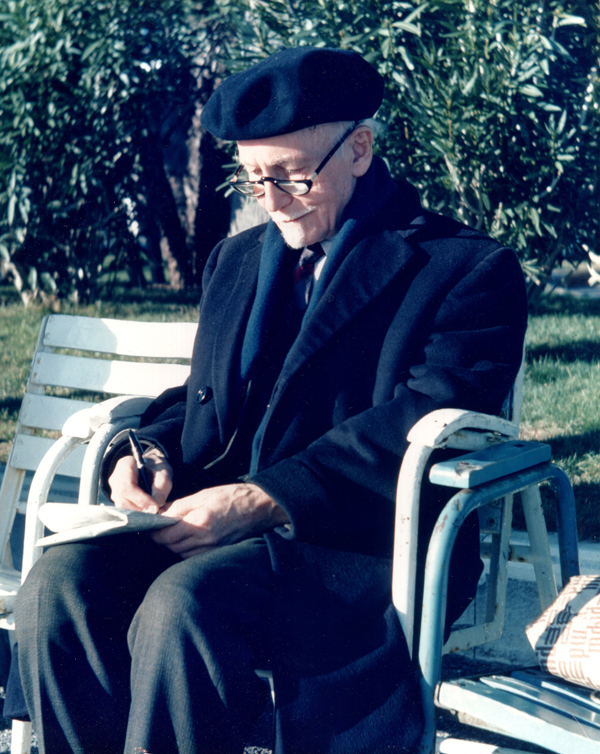

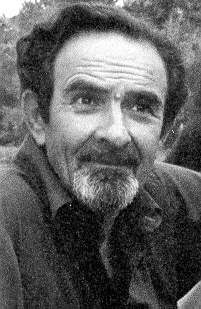


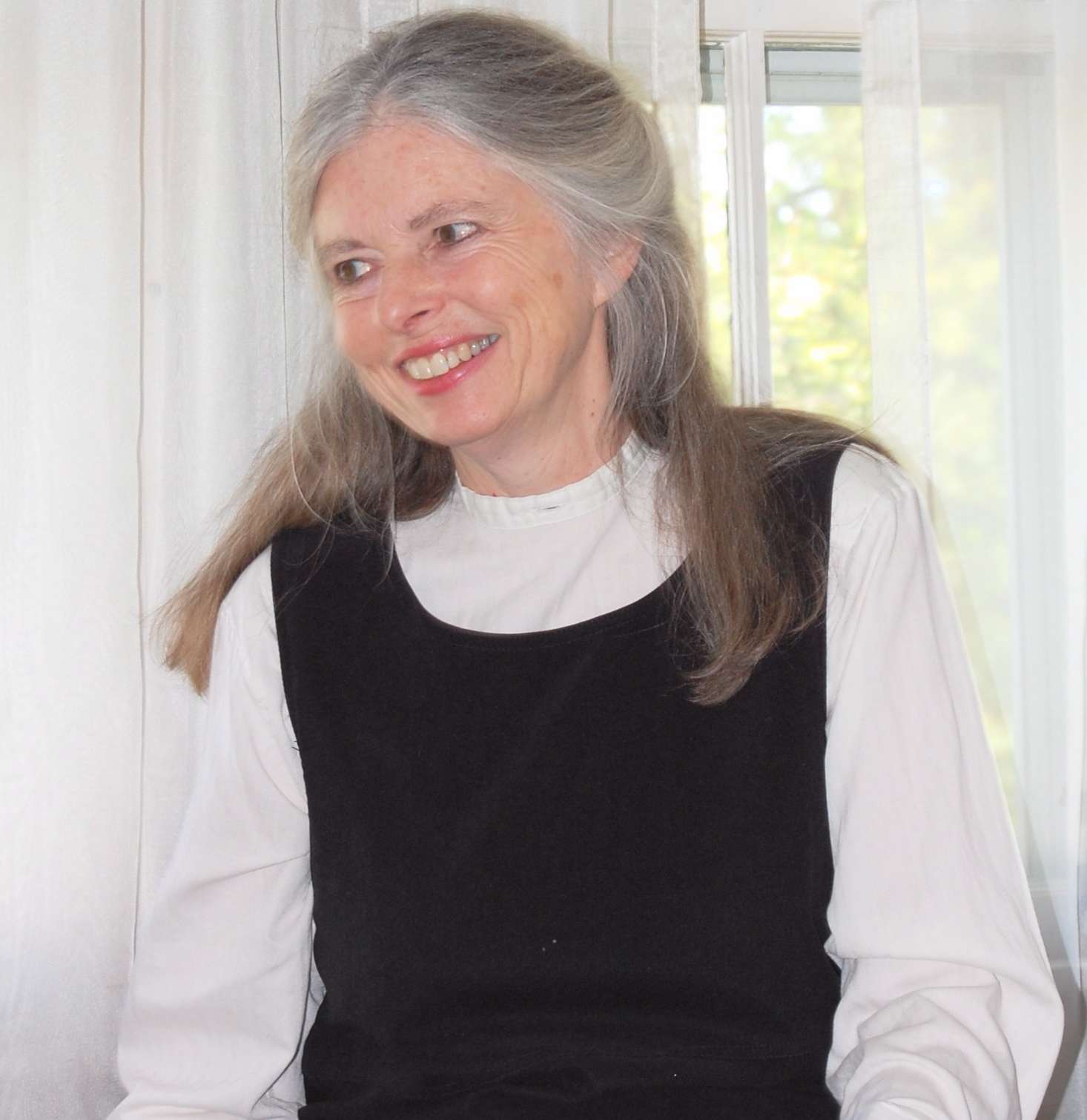
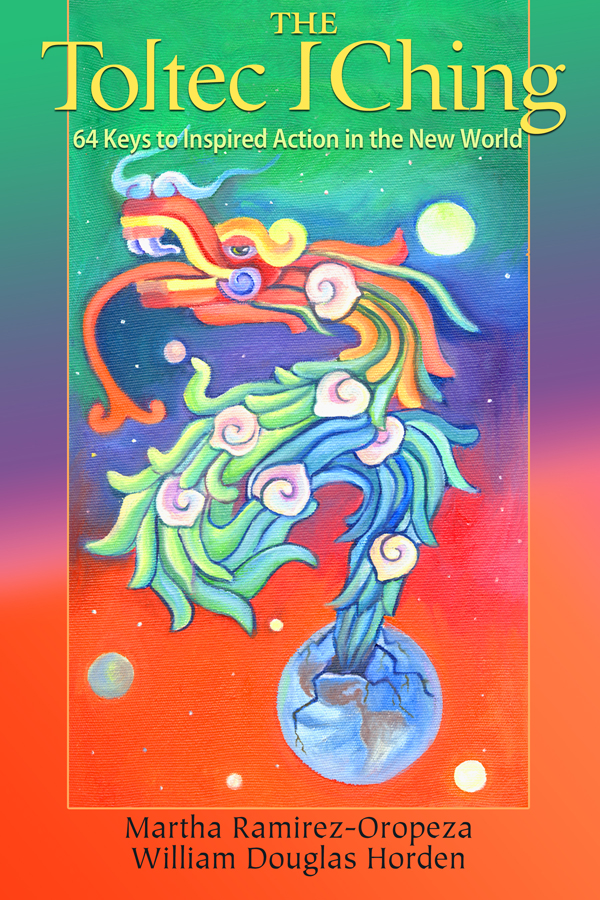
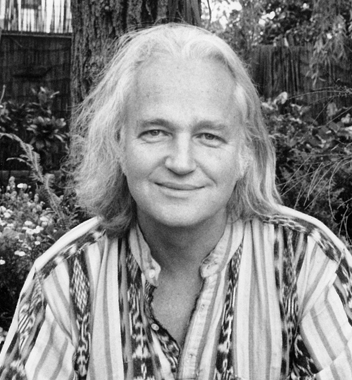
.jpg)
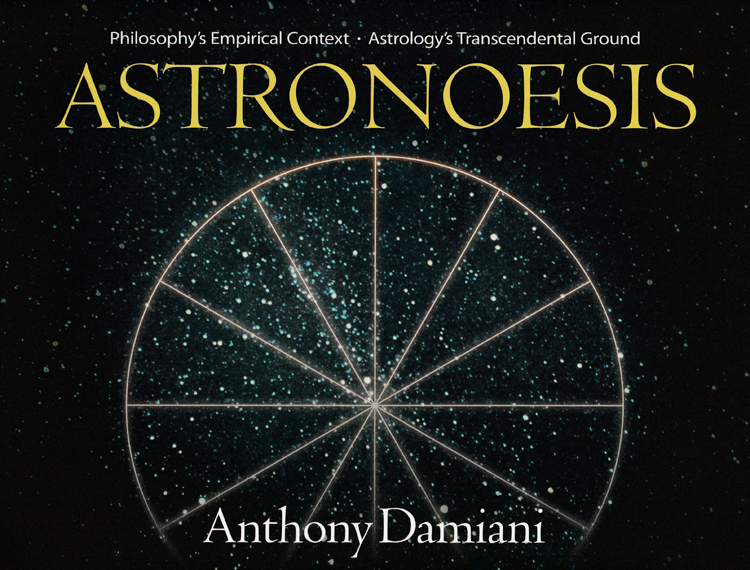
.jpg)
.jpg)
.jpg)
.jpg)
.jpg)
.jpg)
.jpg)
.jpg)
.jpg)
.jpg)
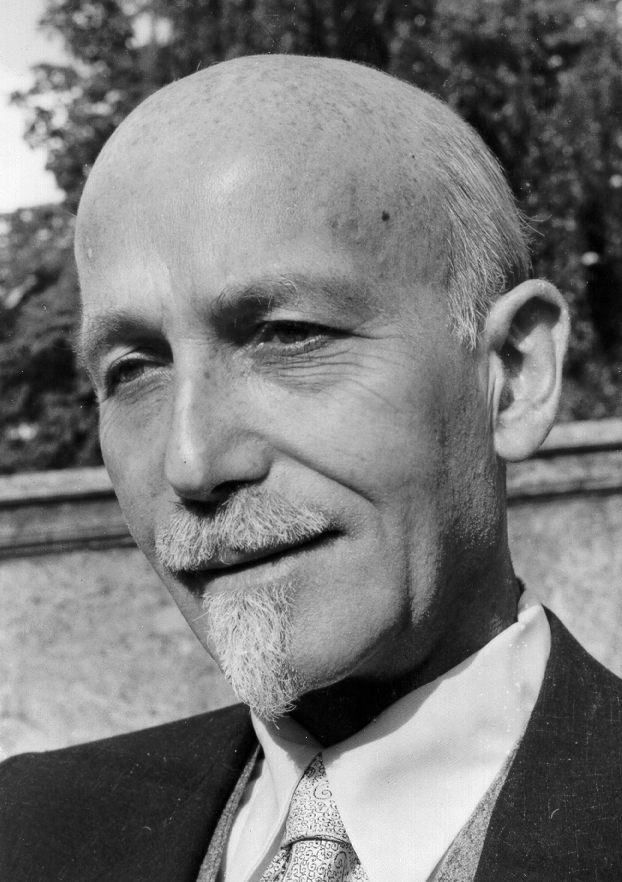
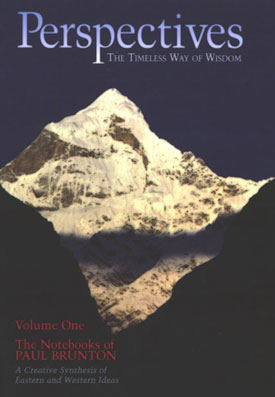
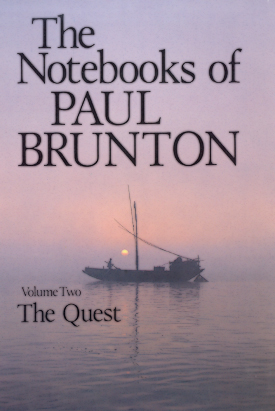
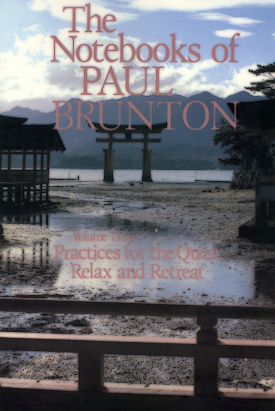
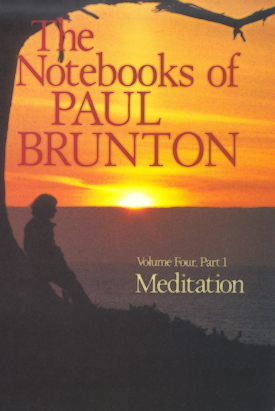
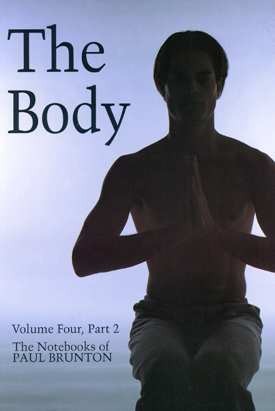
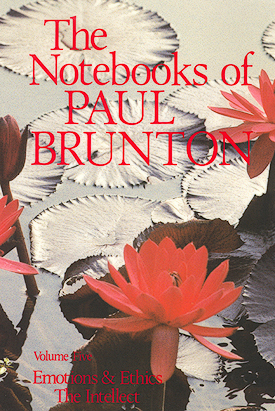
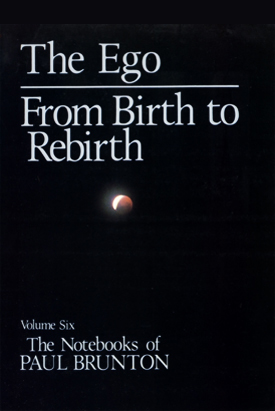
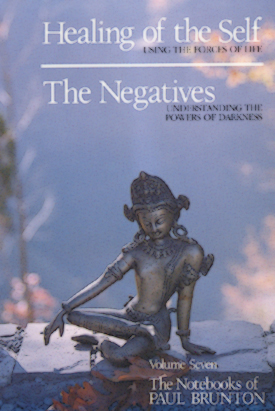

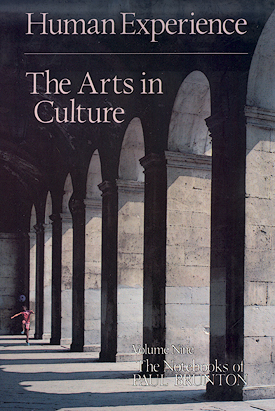
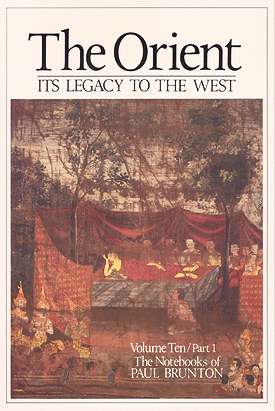
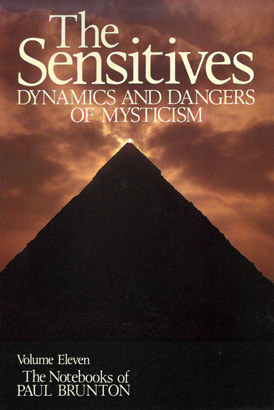
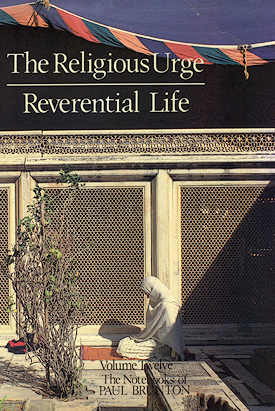
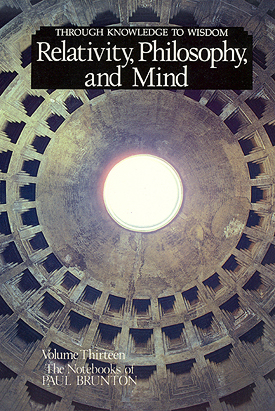
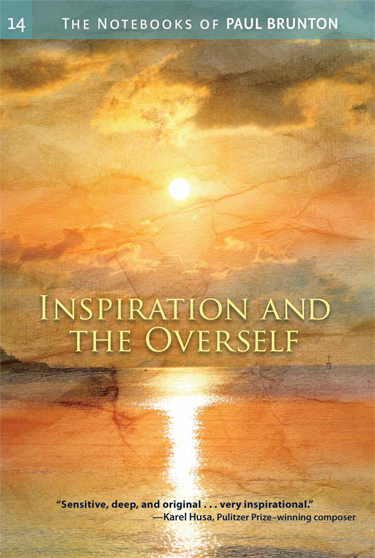
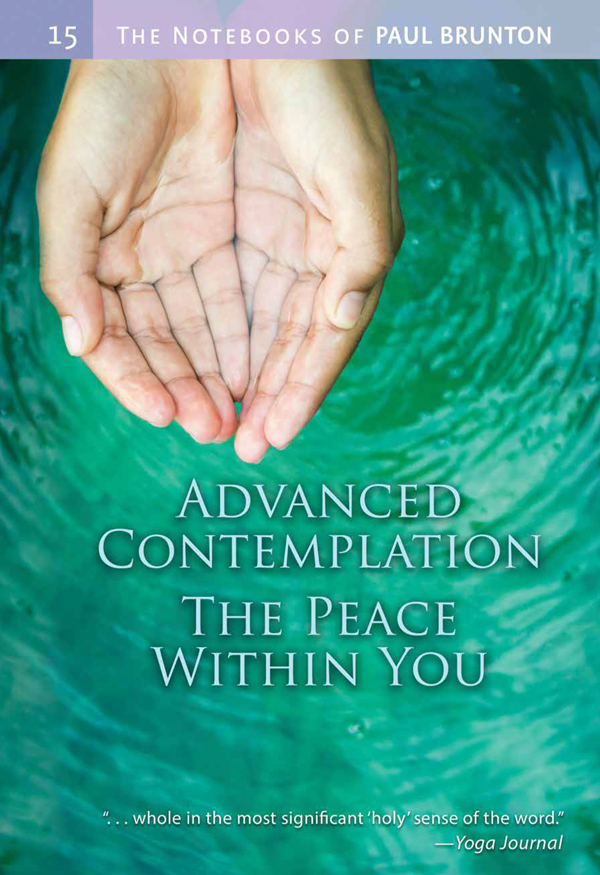
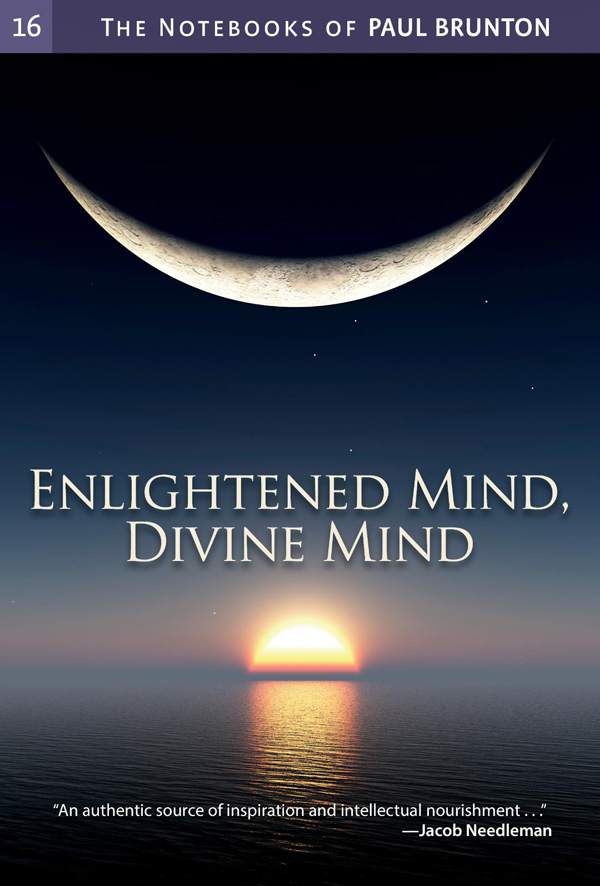
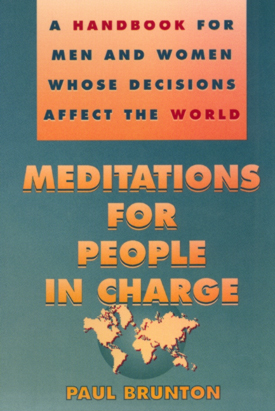
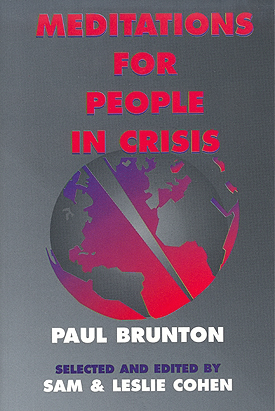

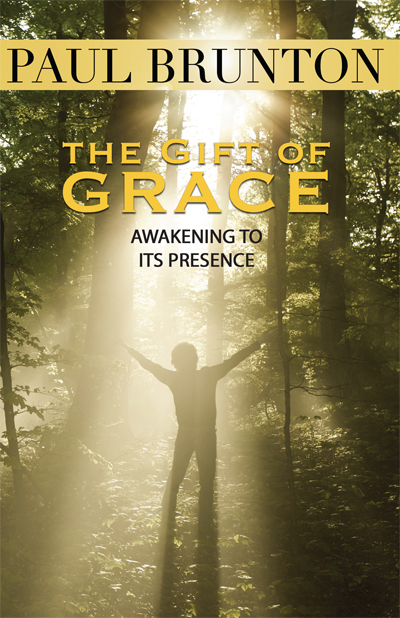
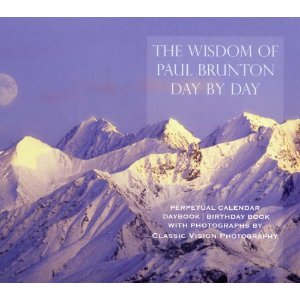
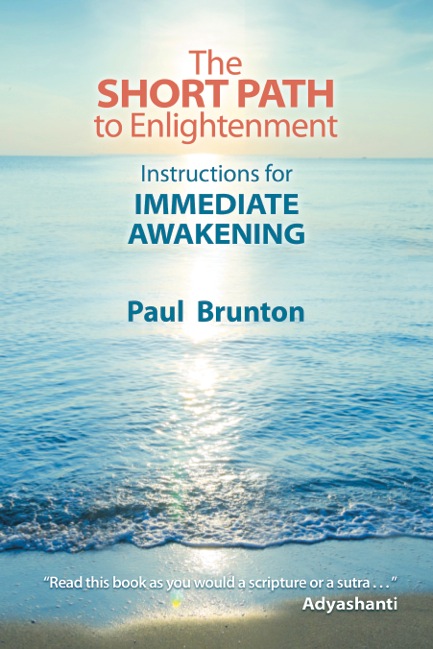
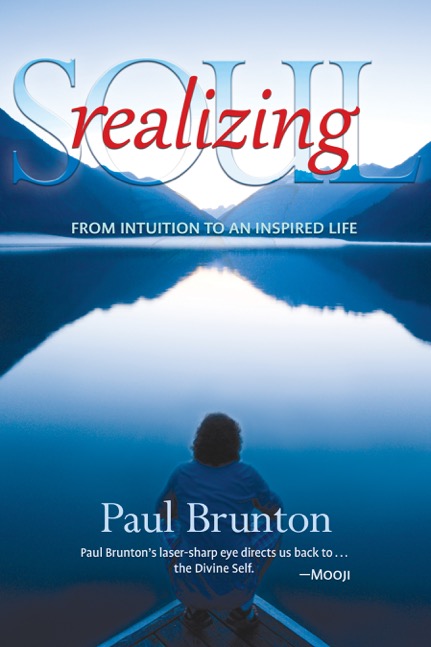
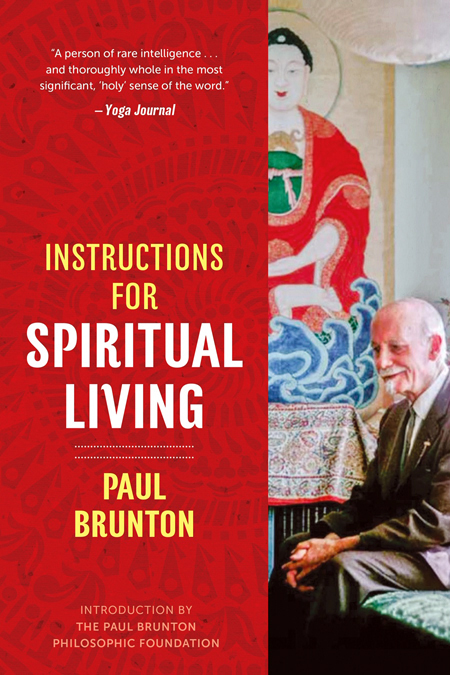
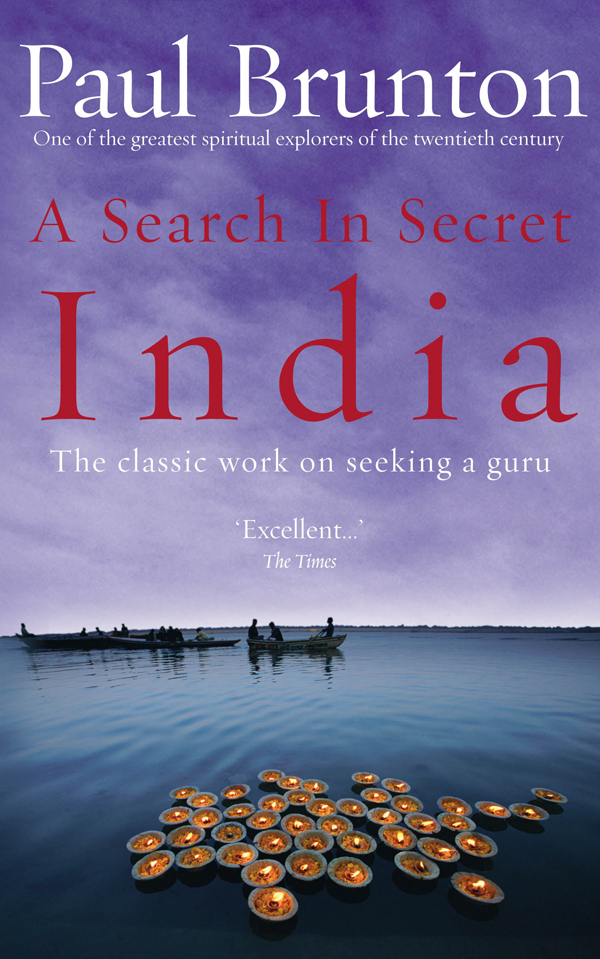
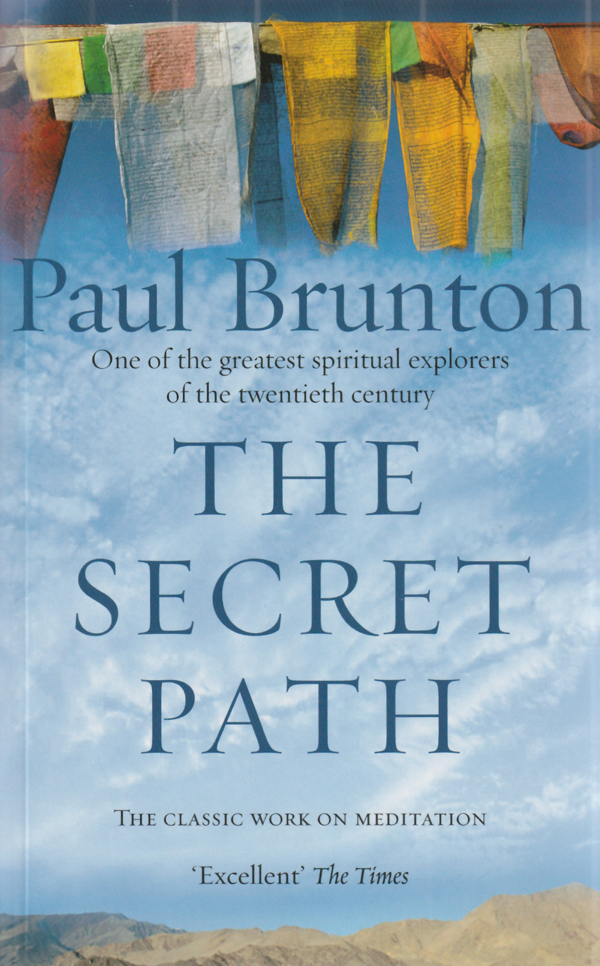
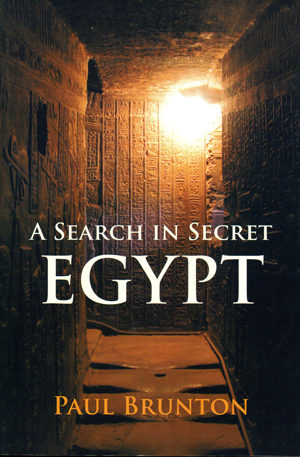
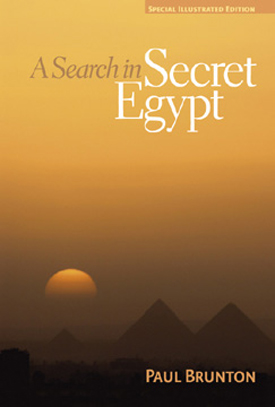
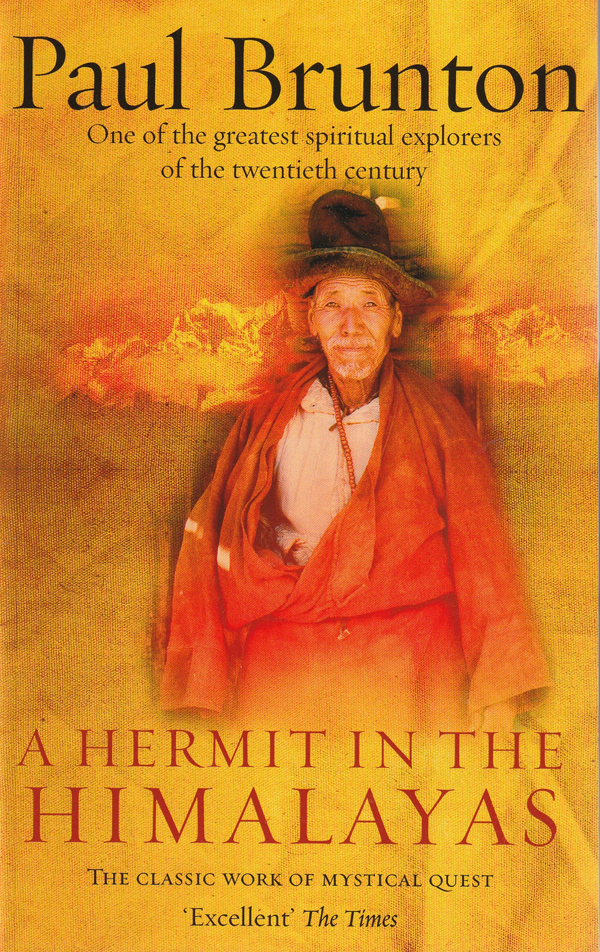
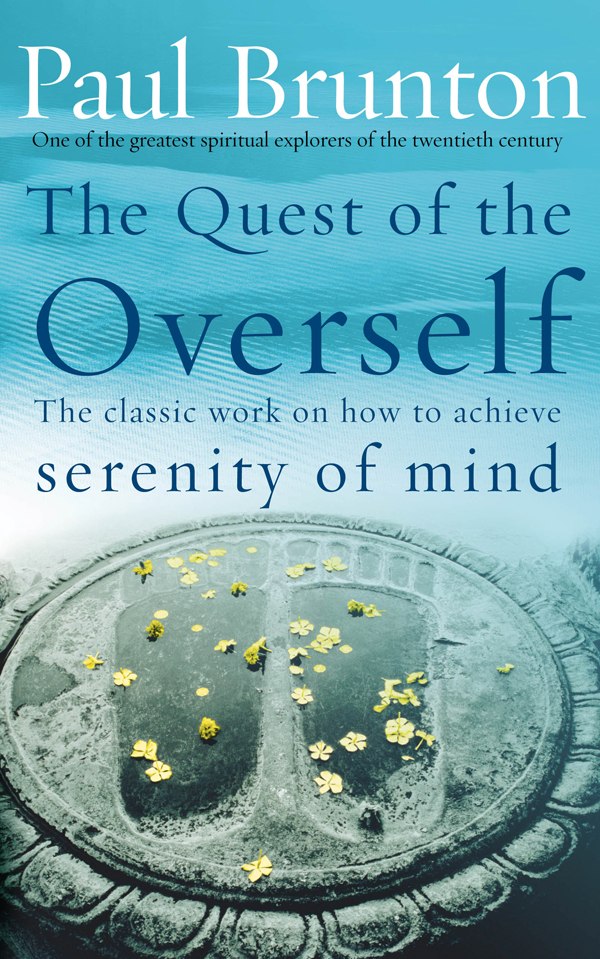
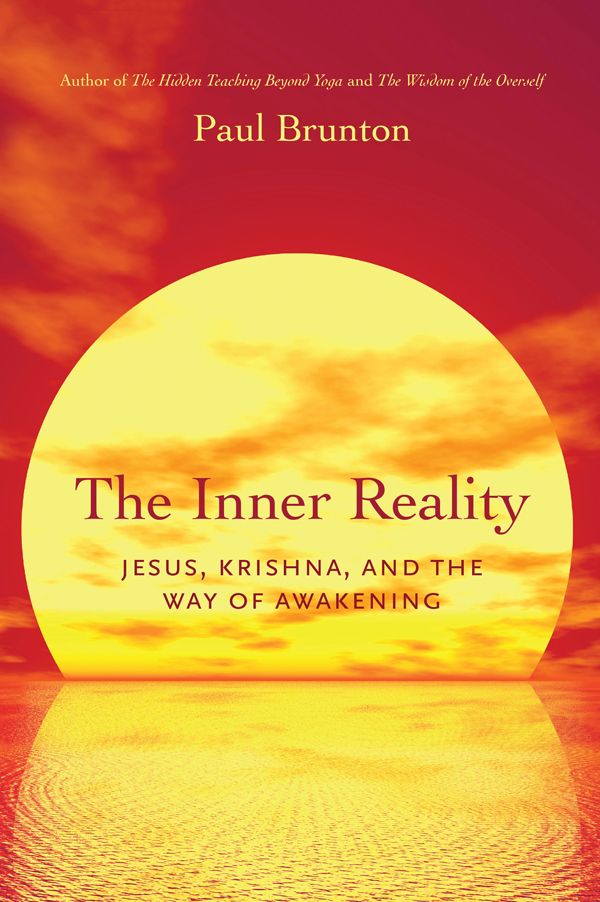
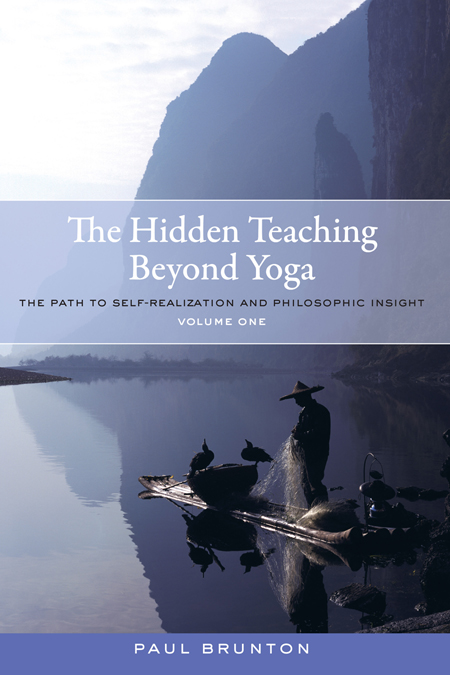
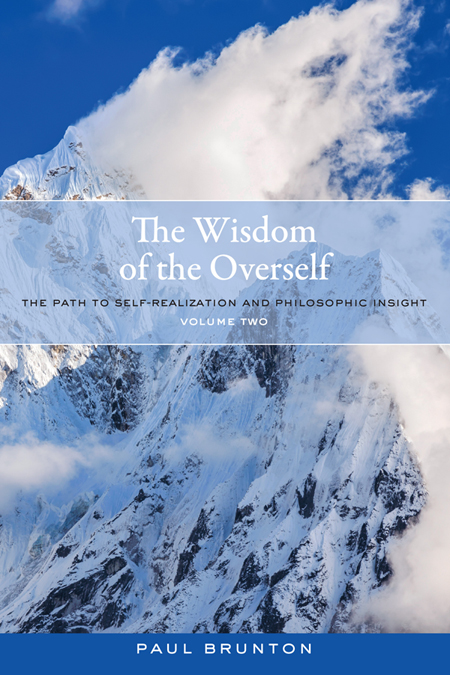
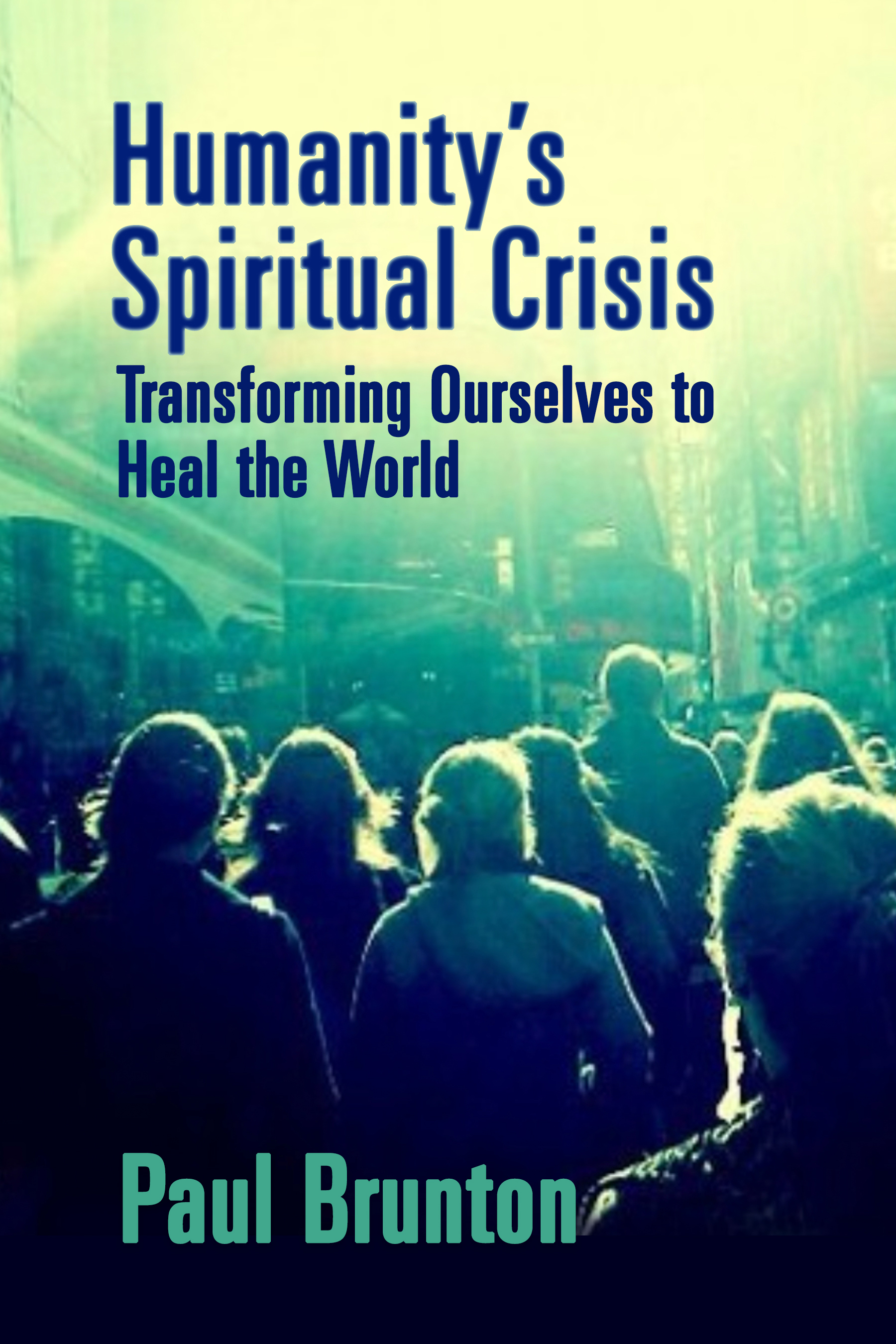
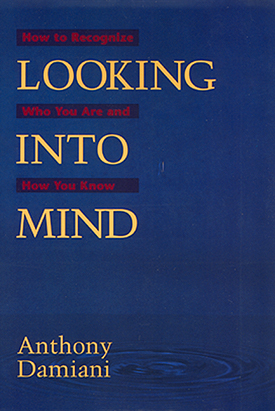
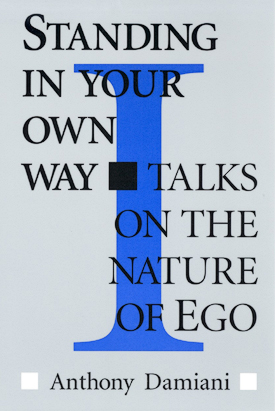
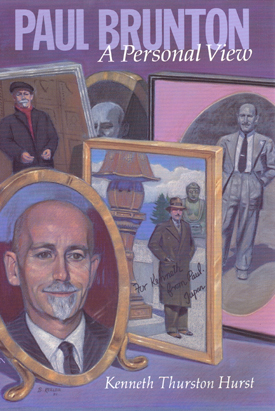
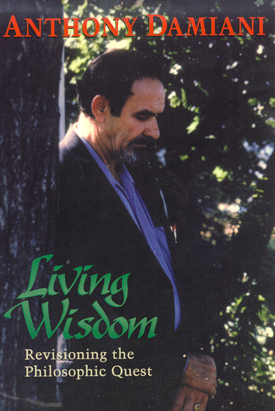
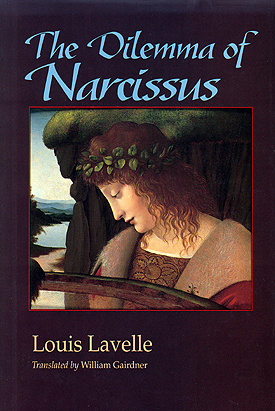
.jpg)